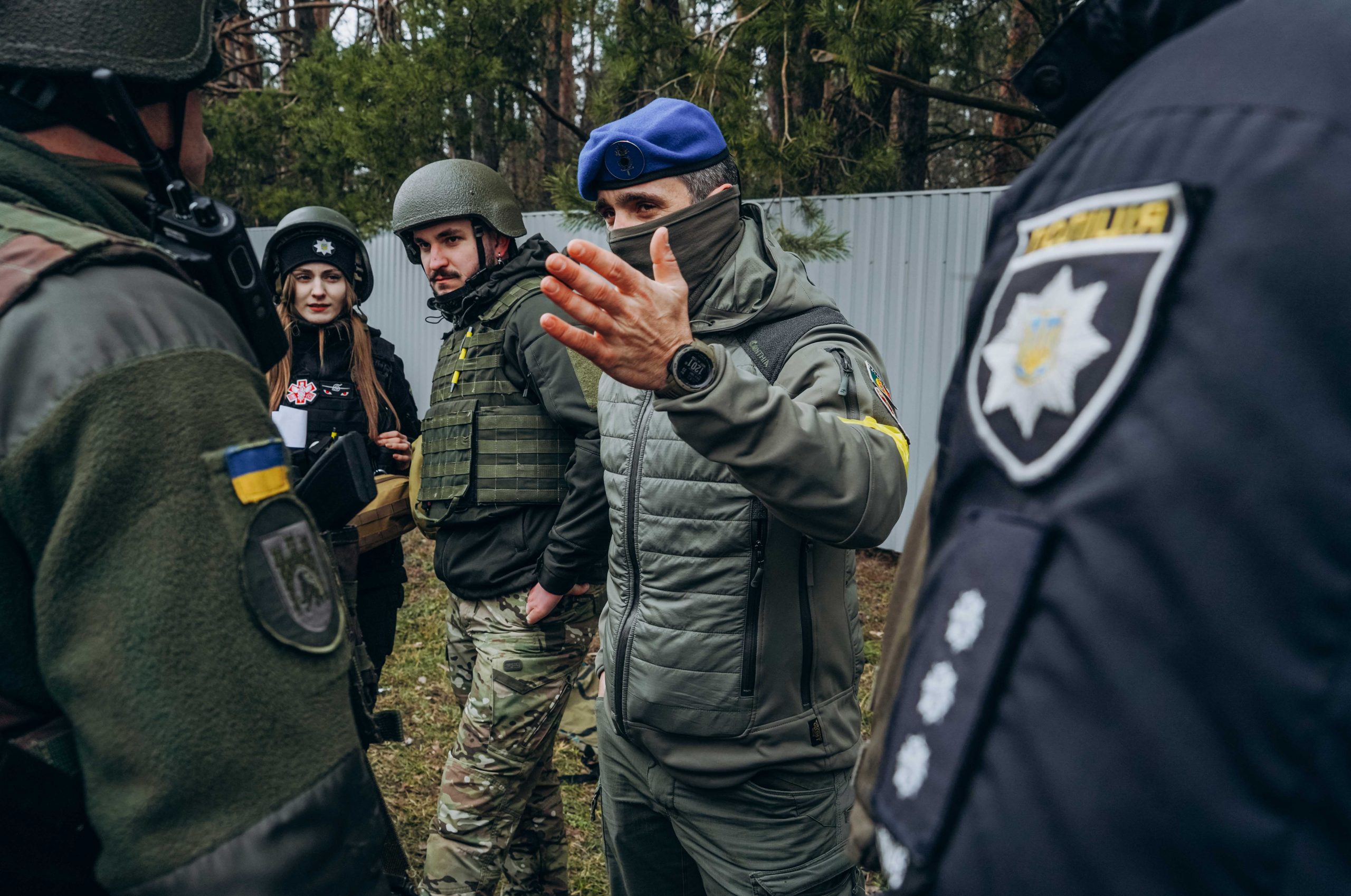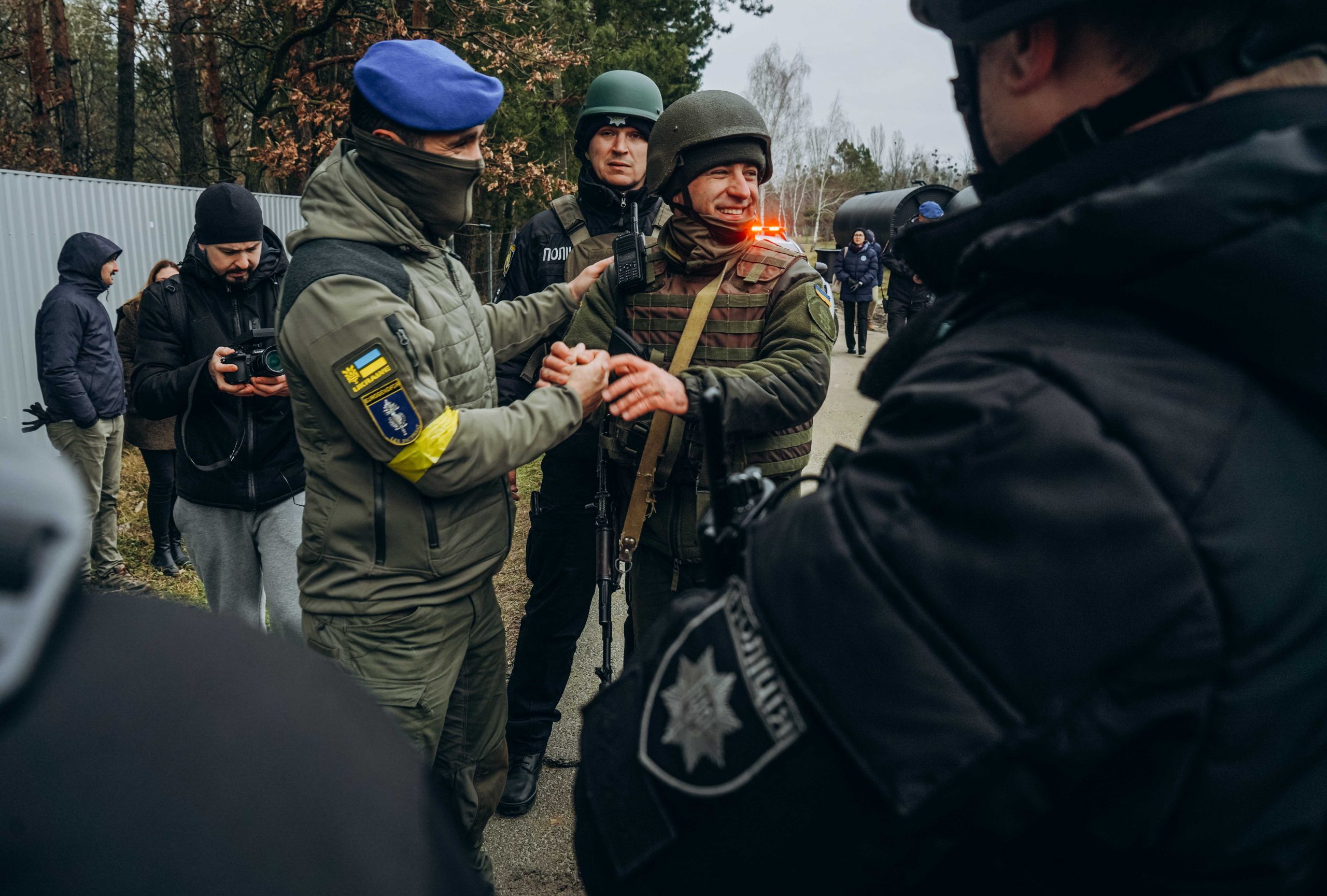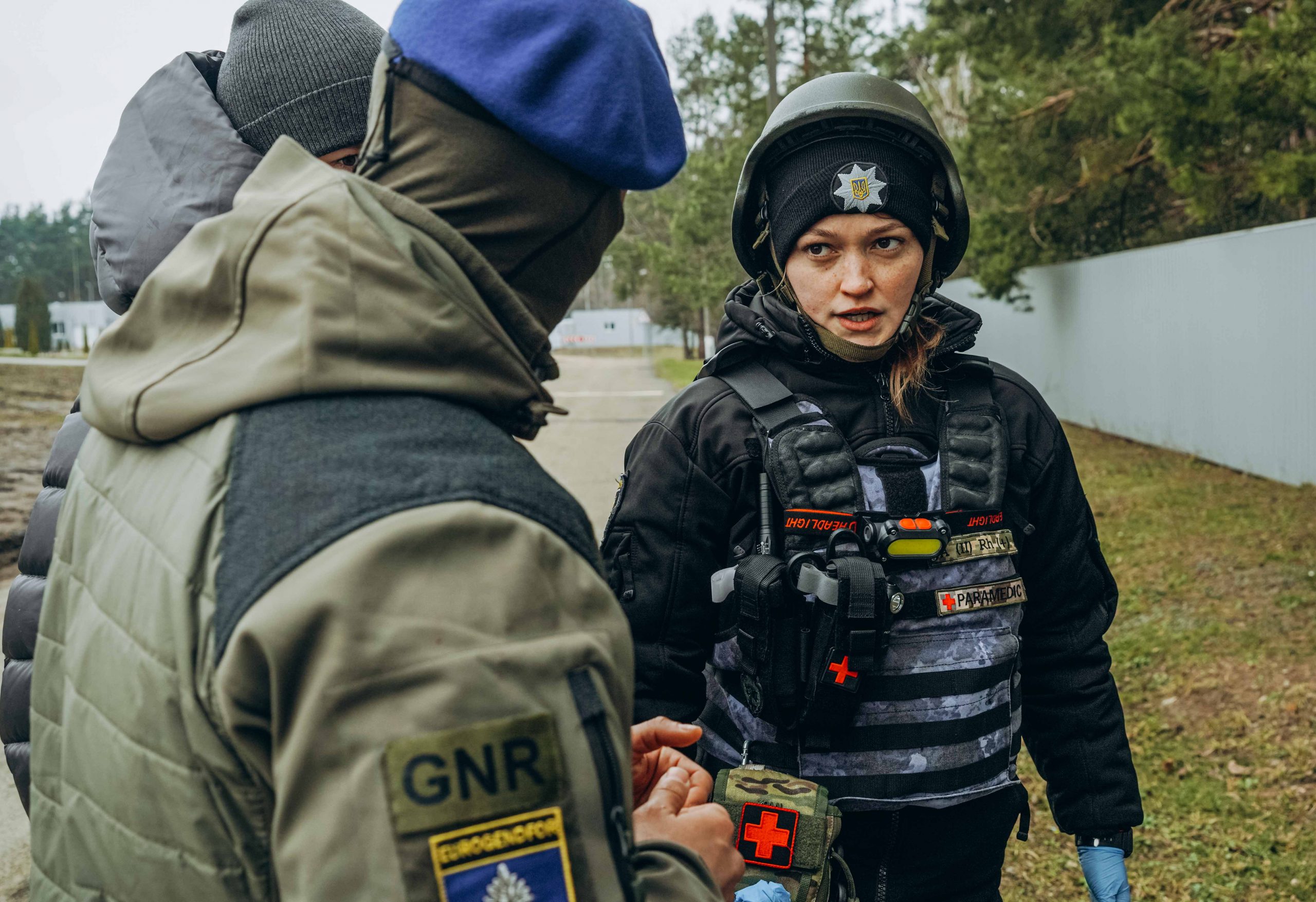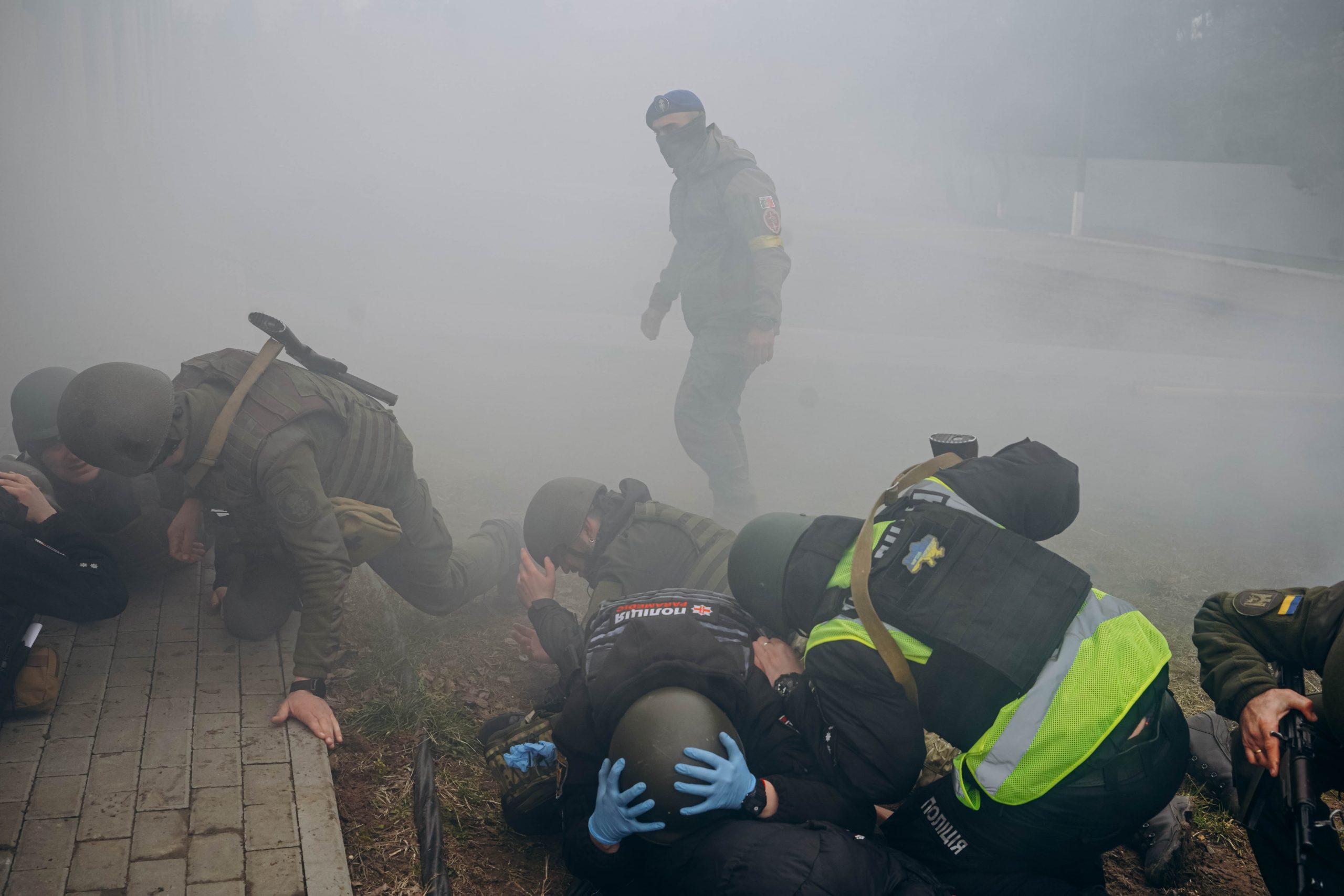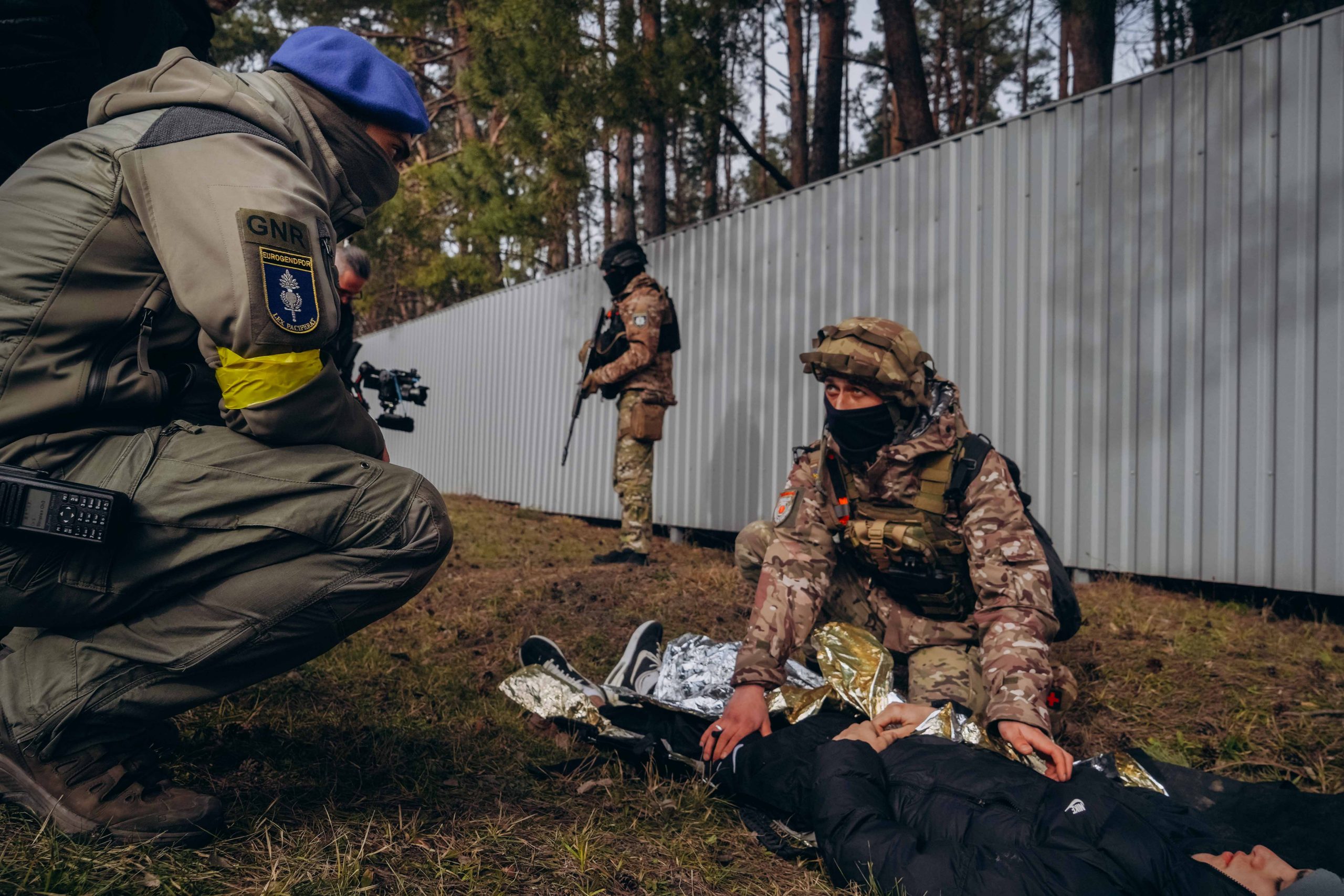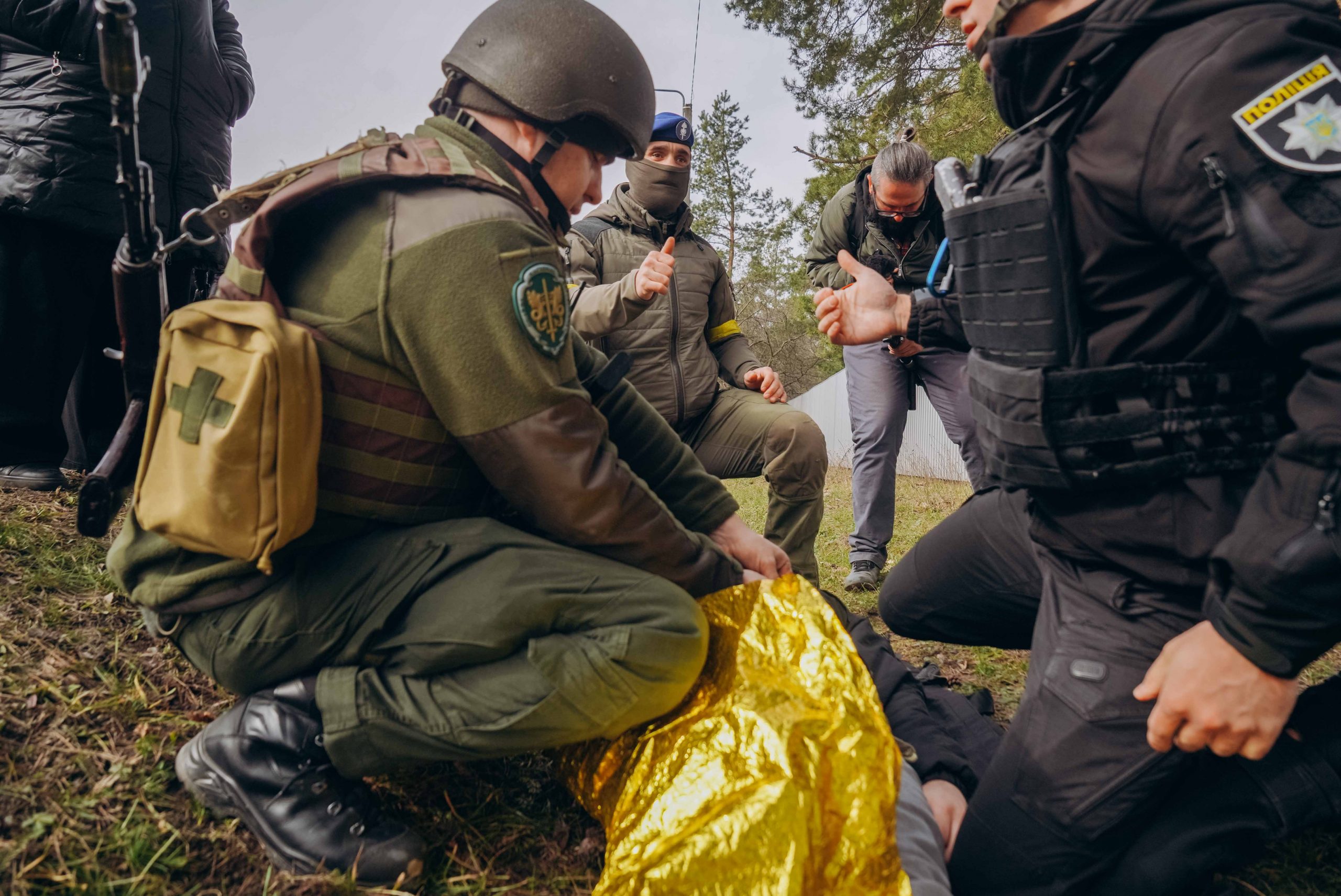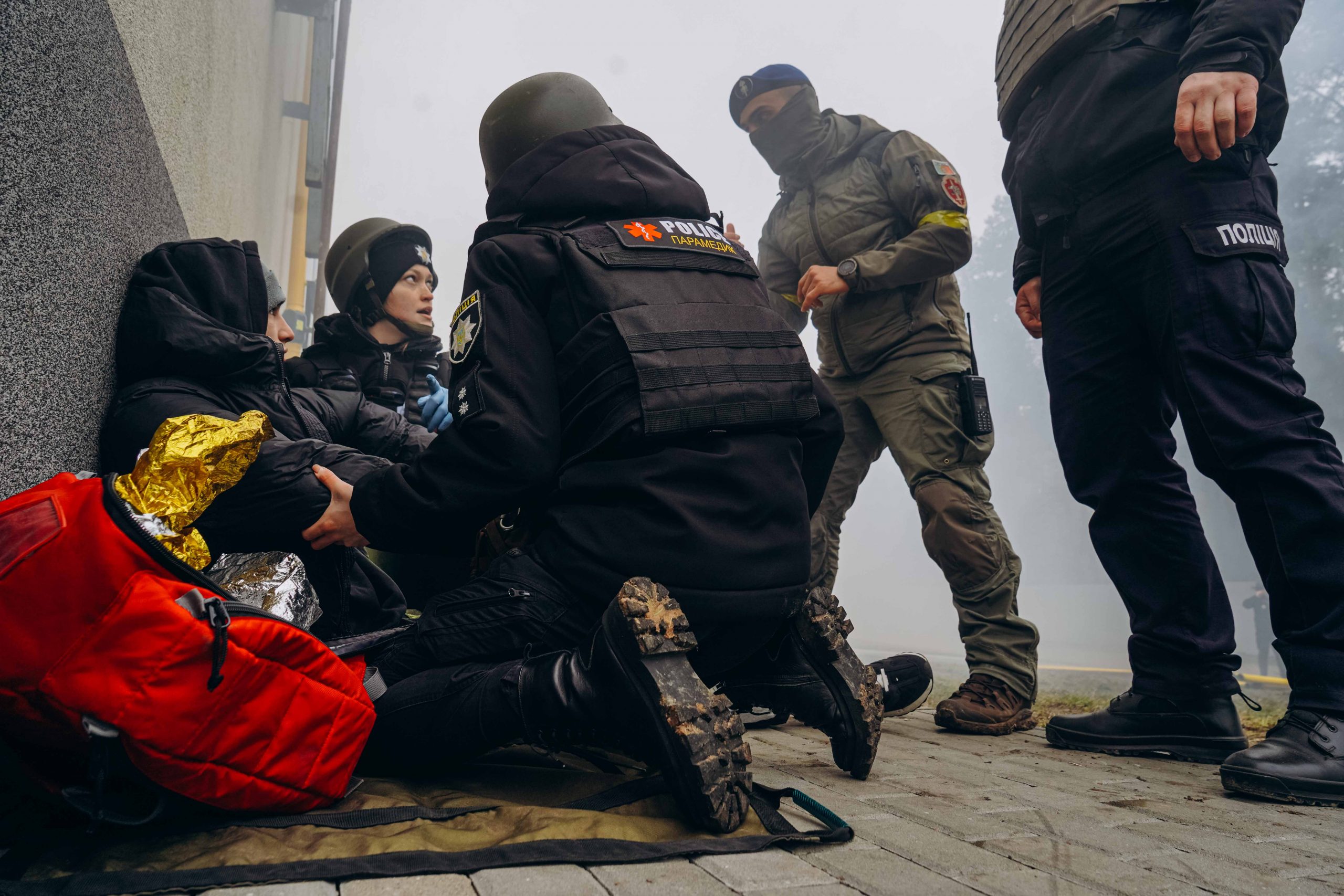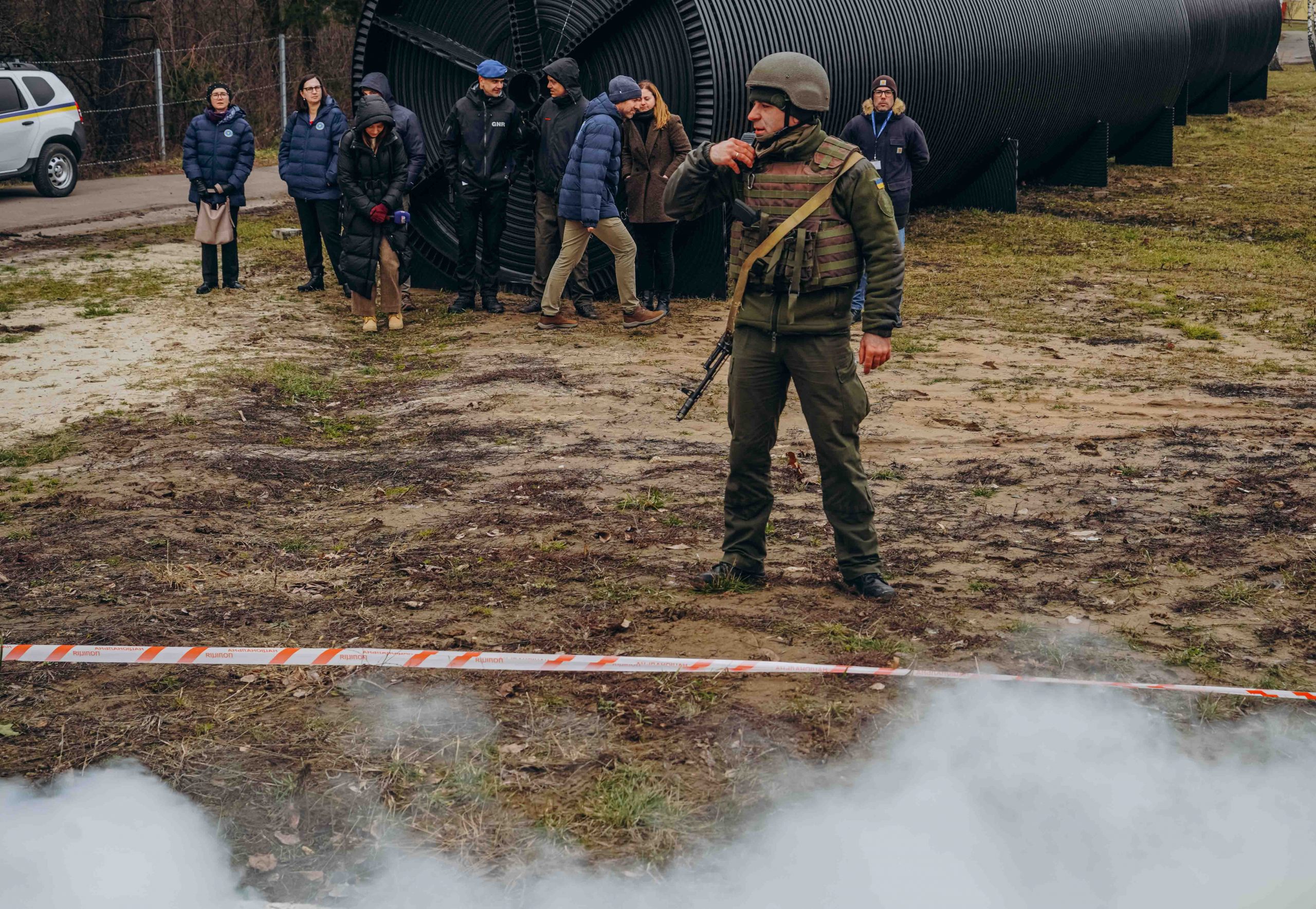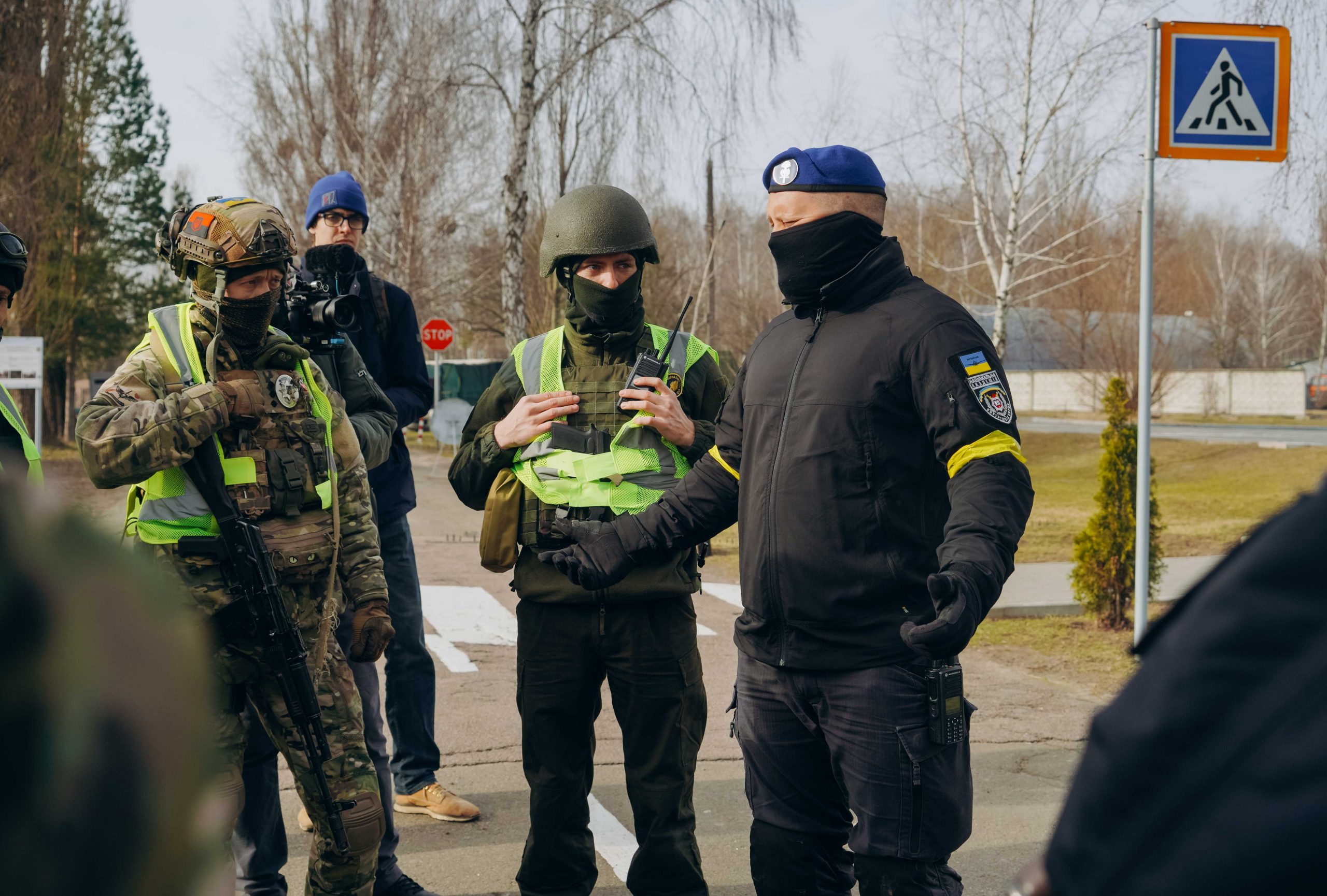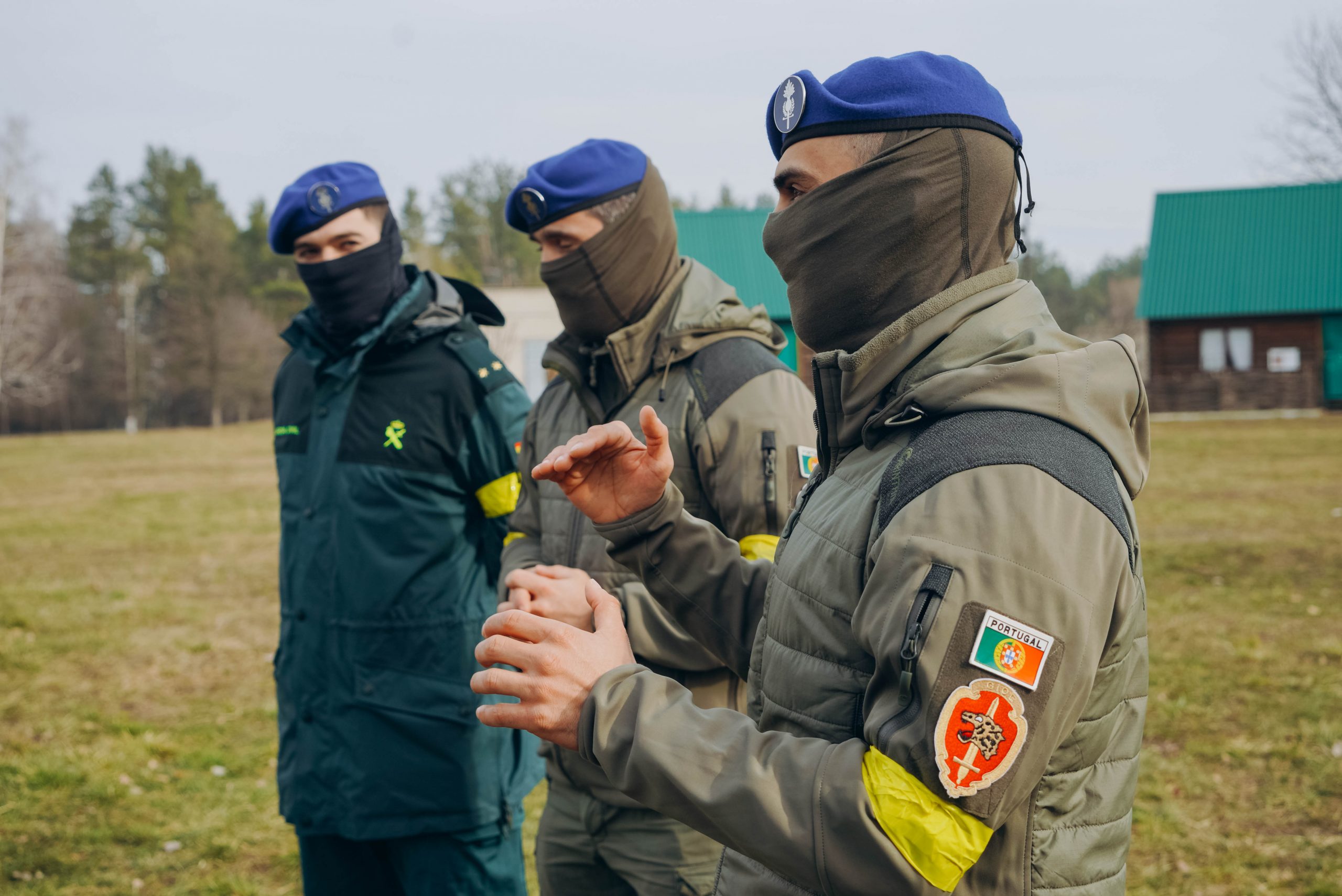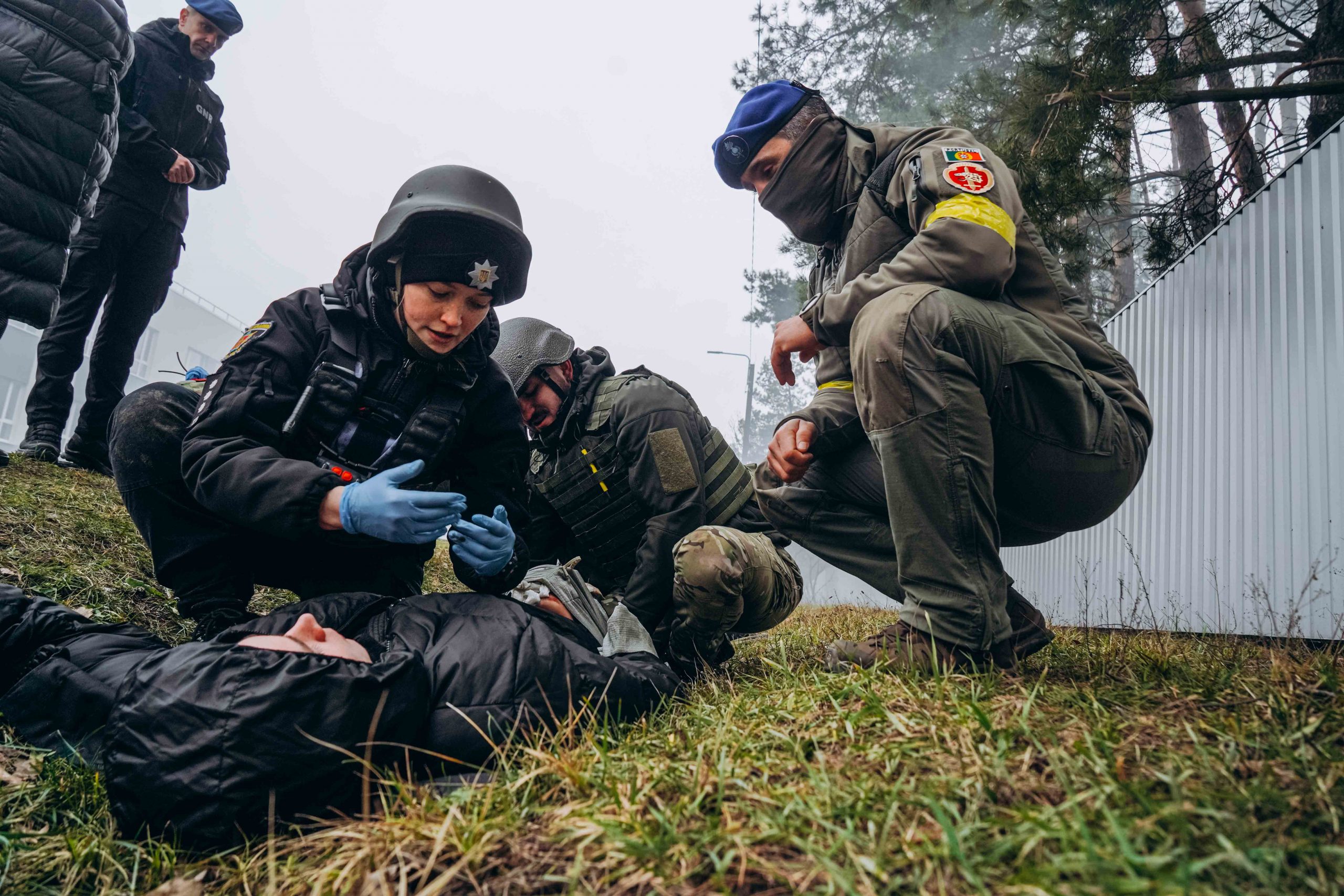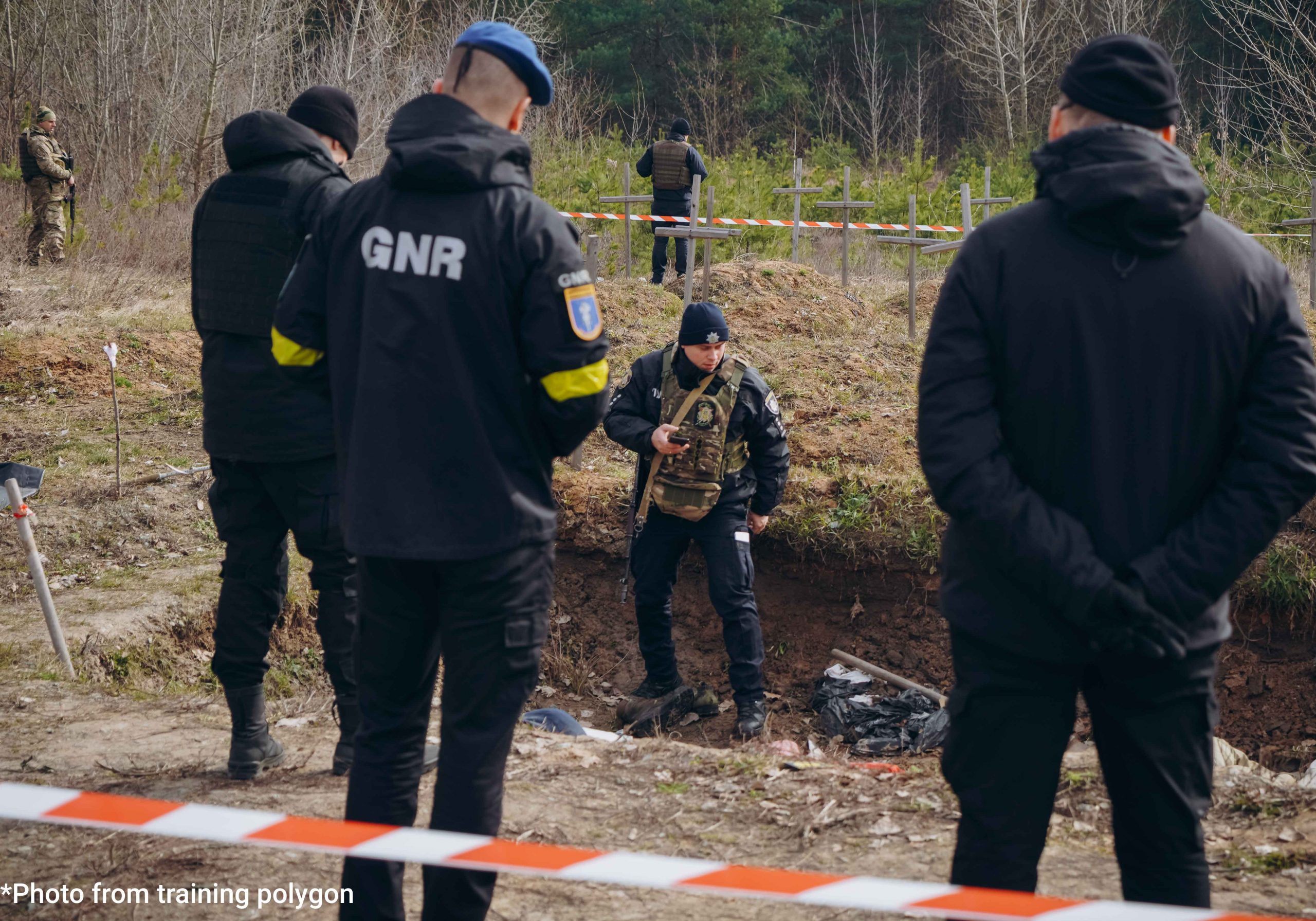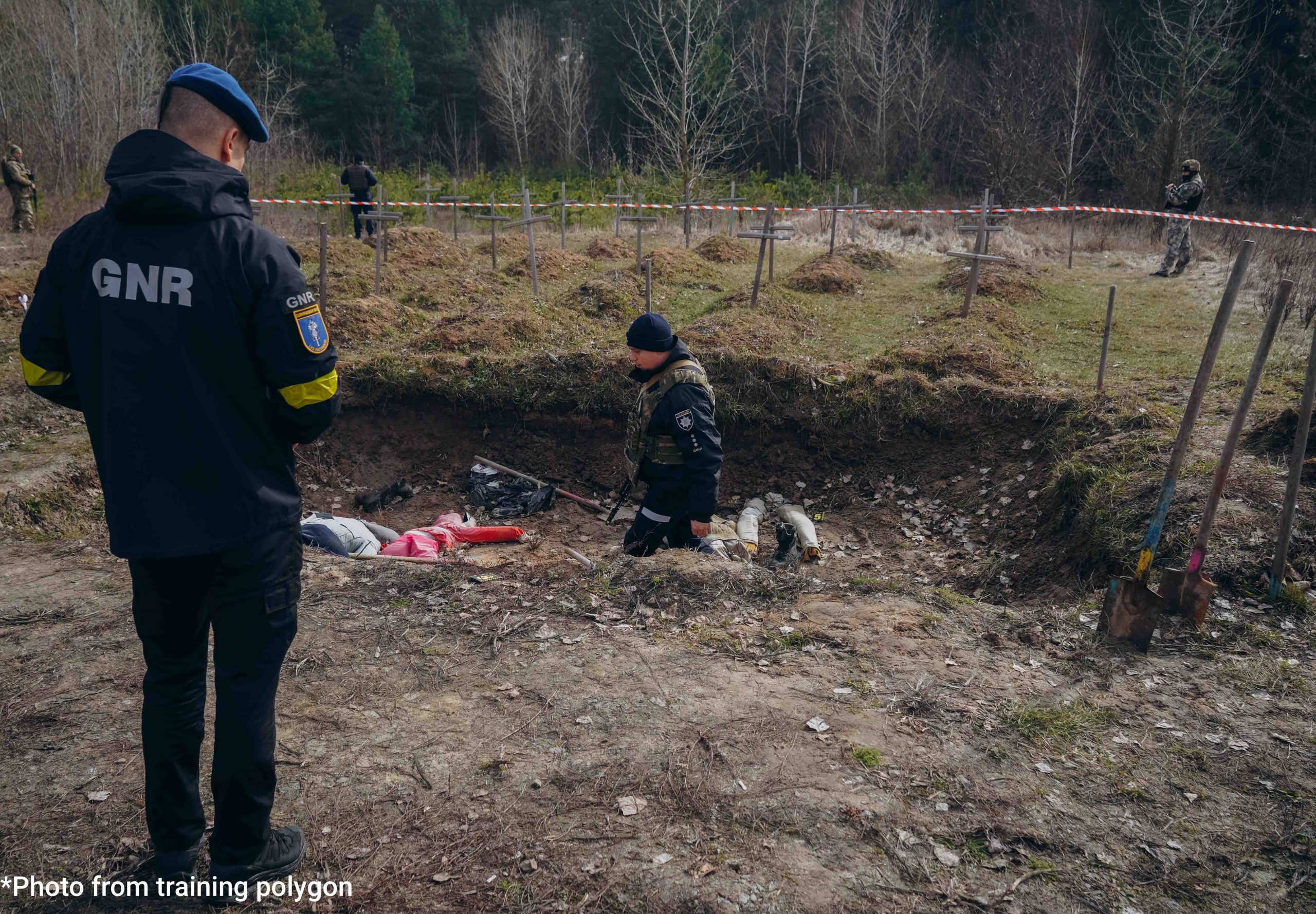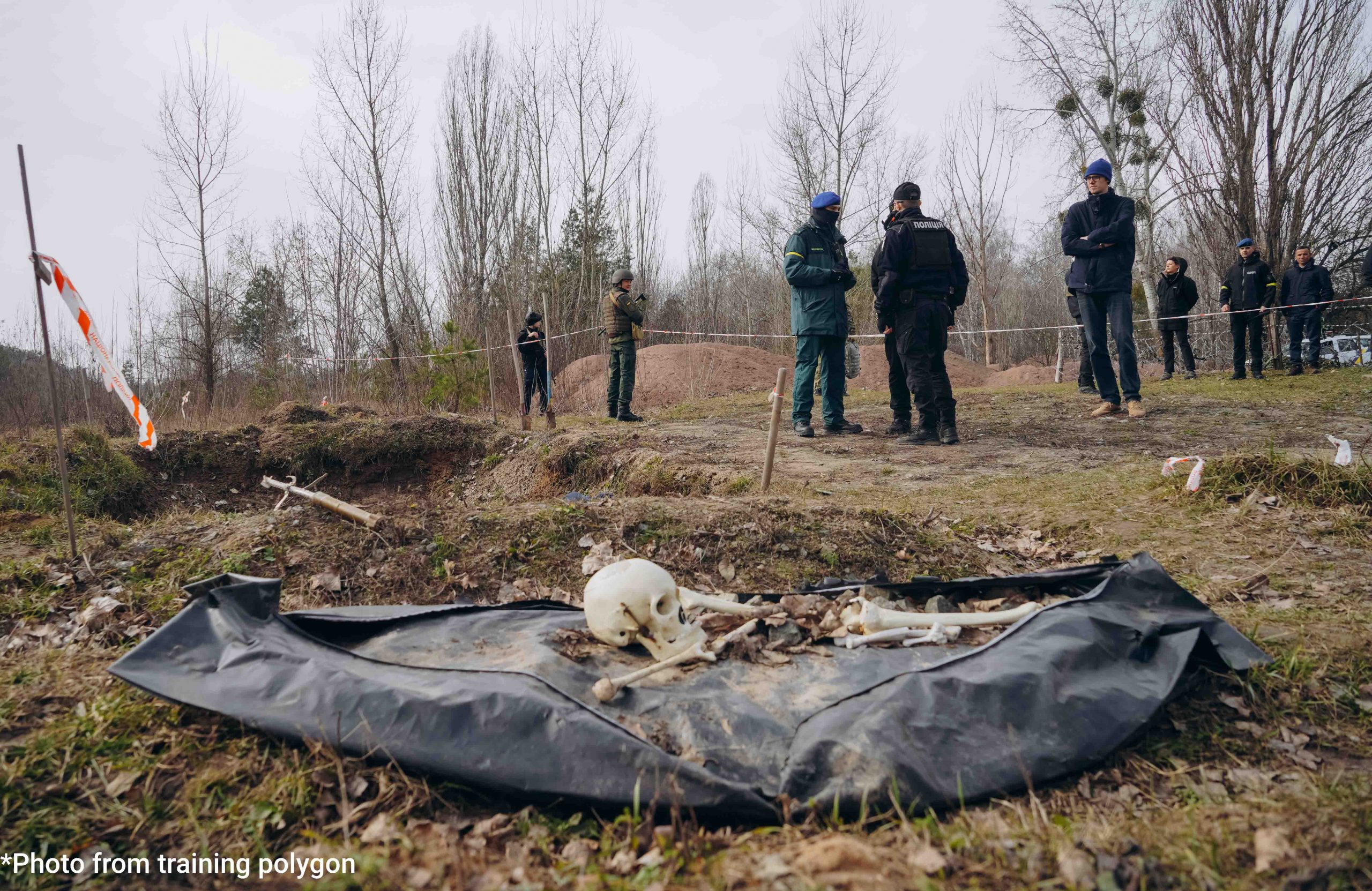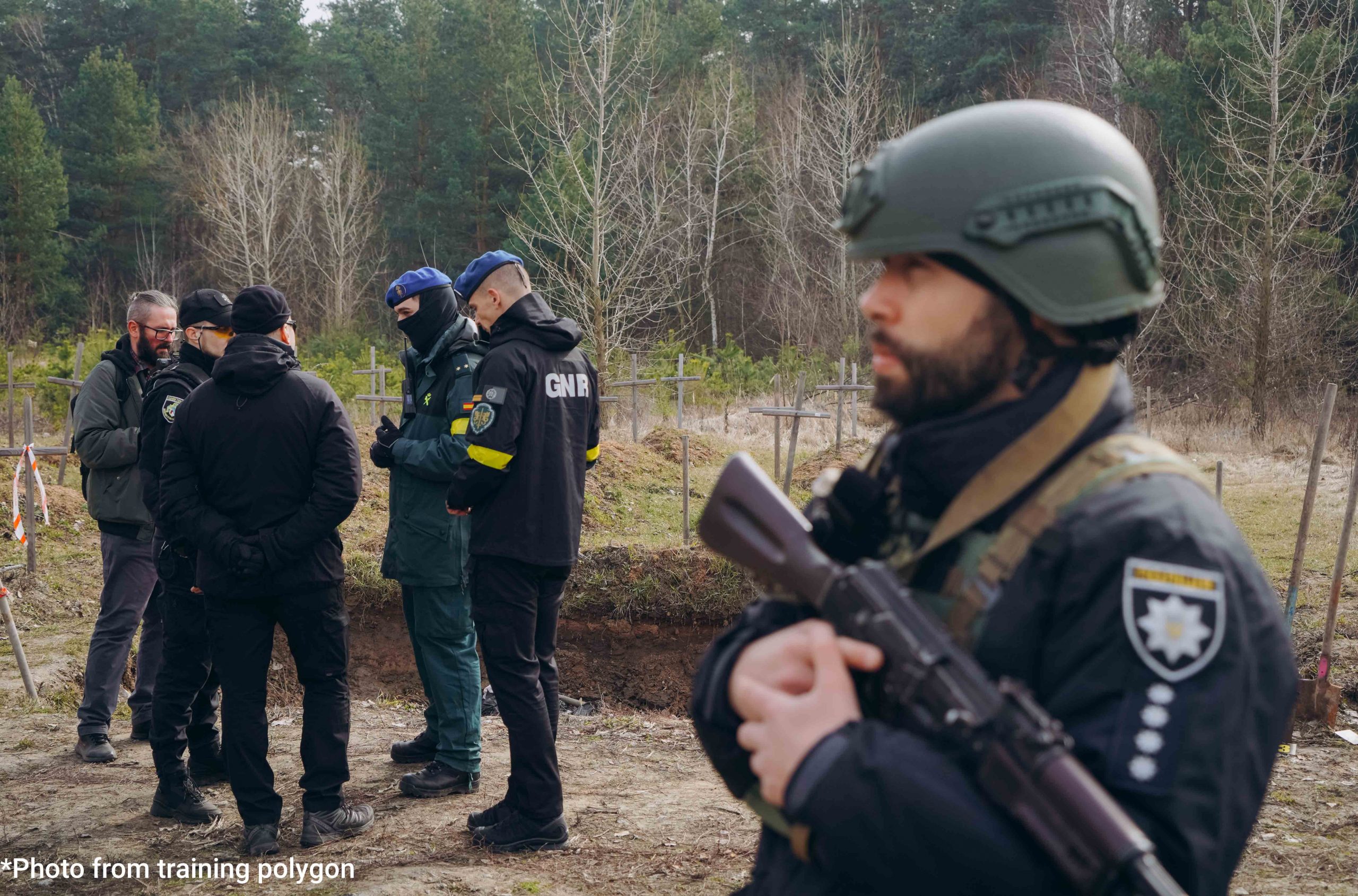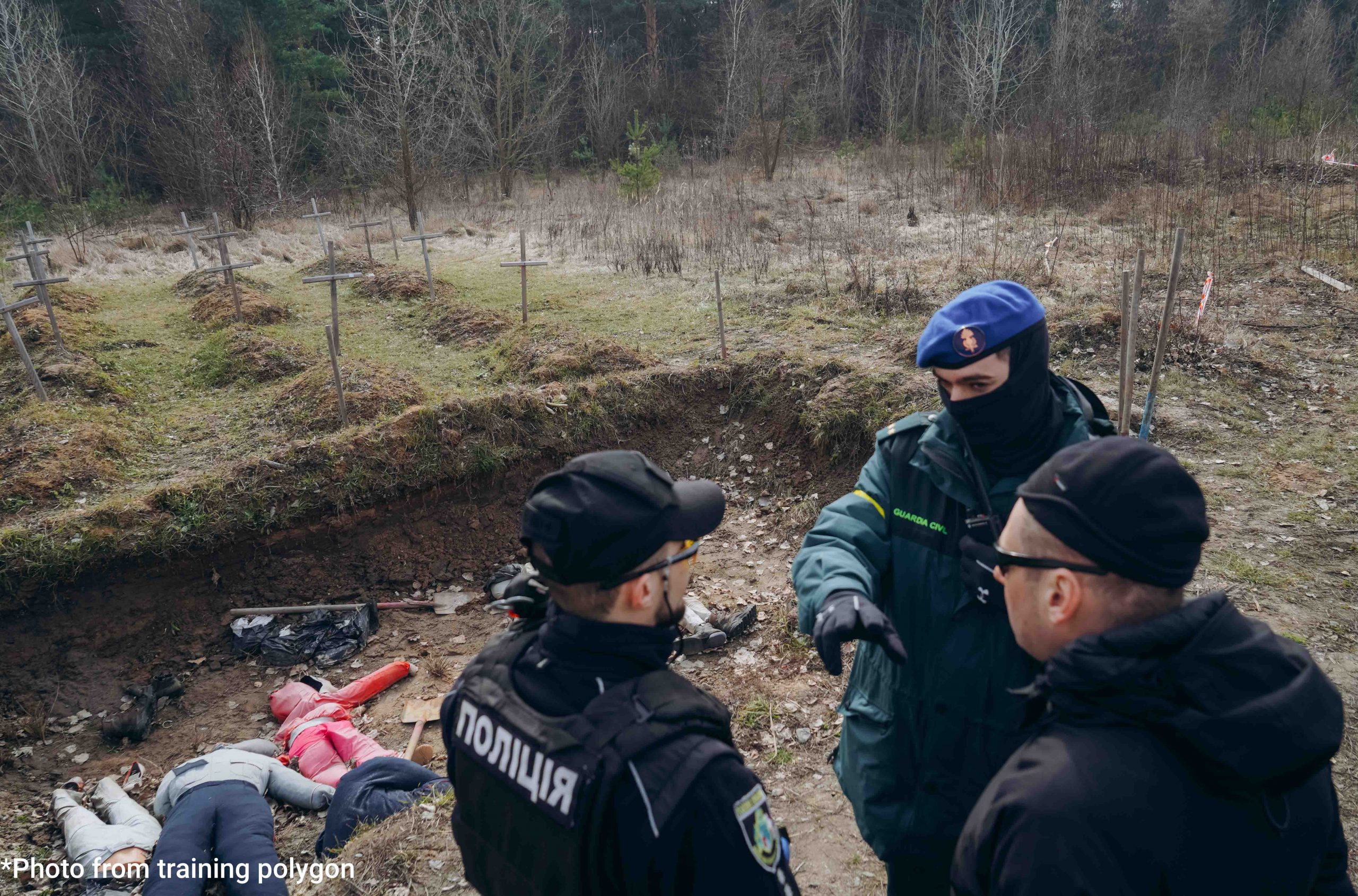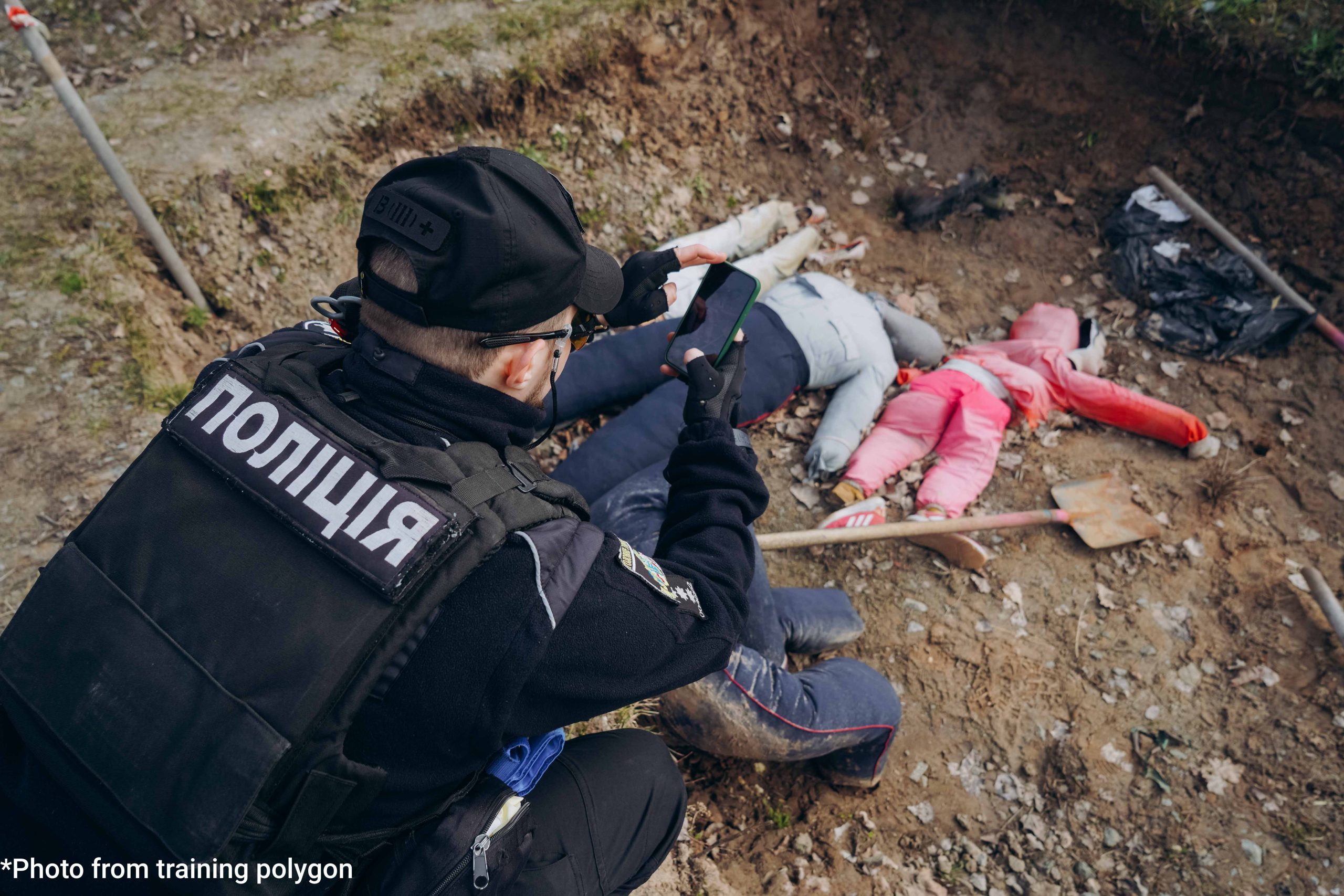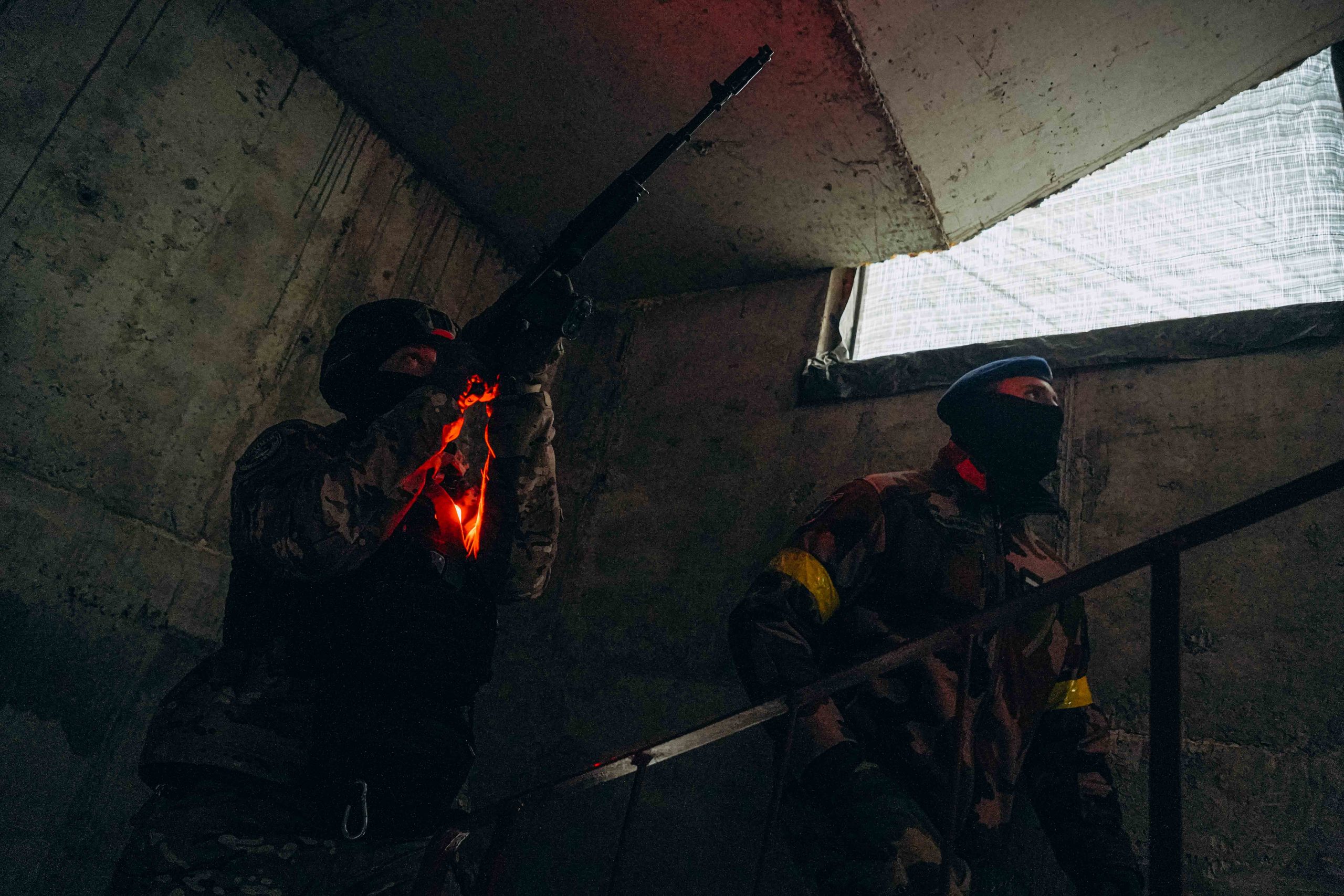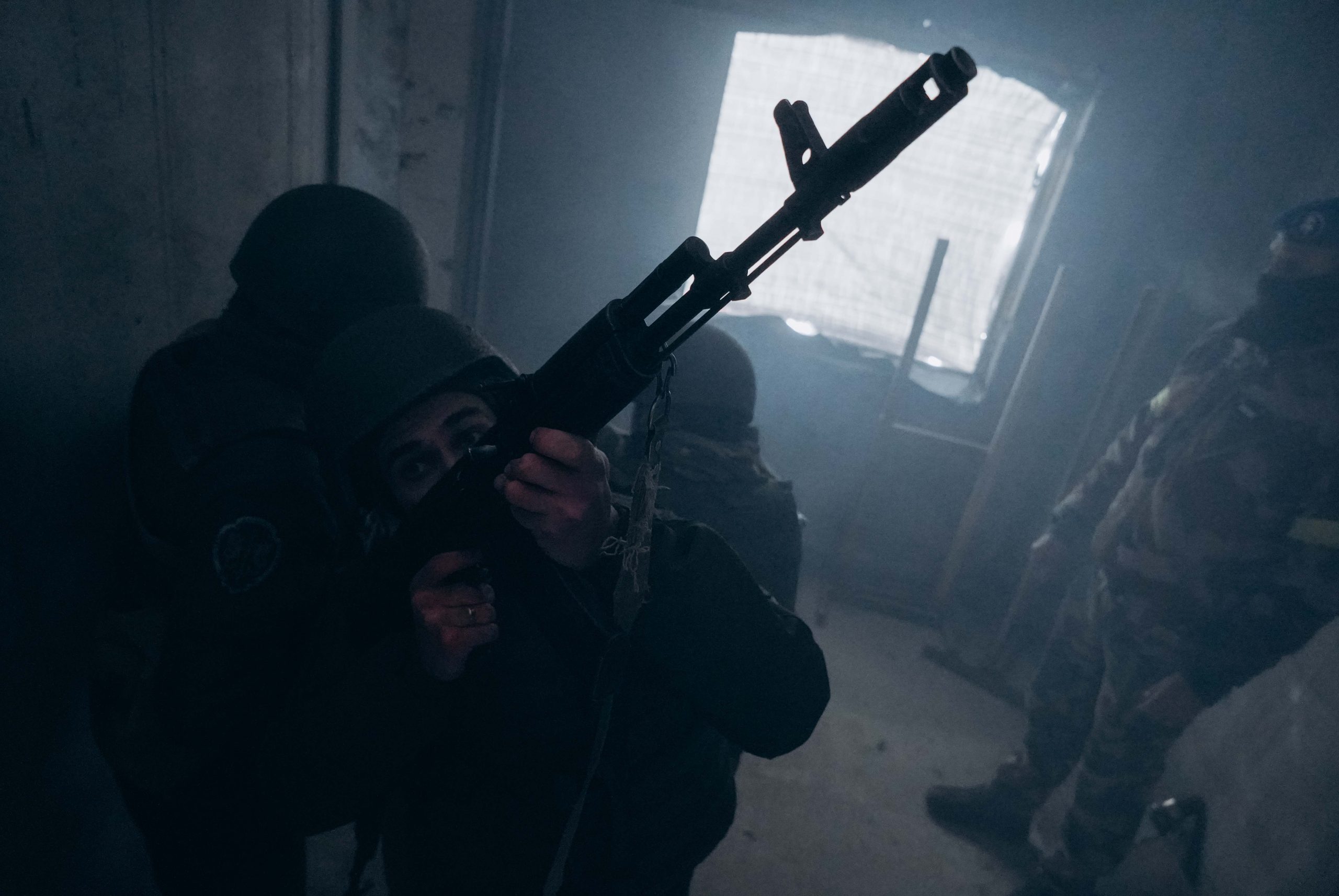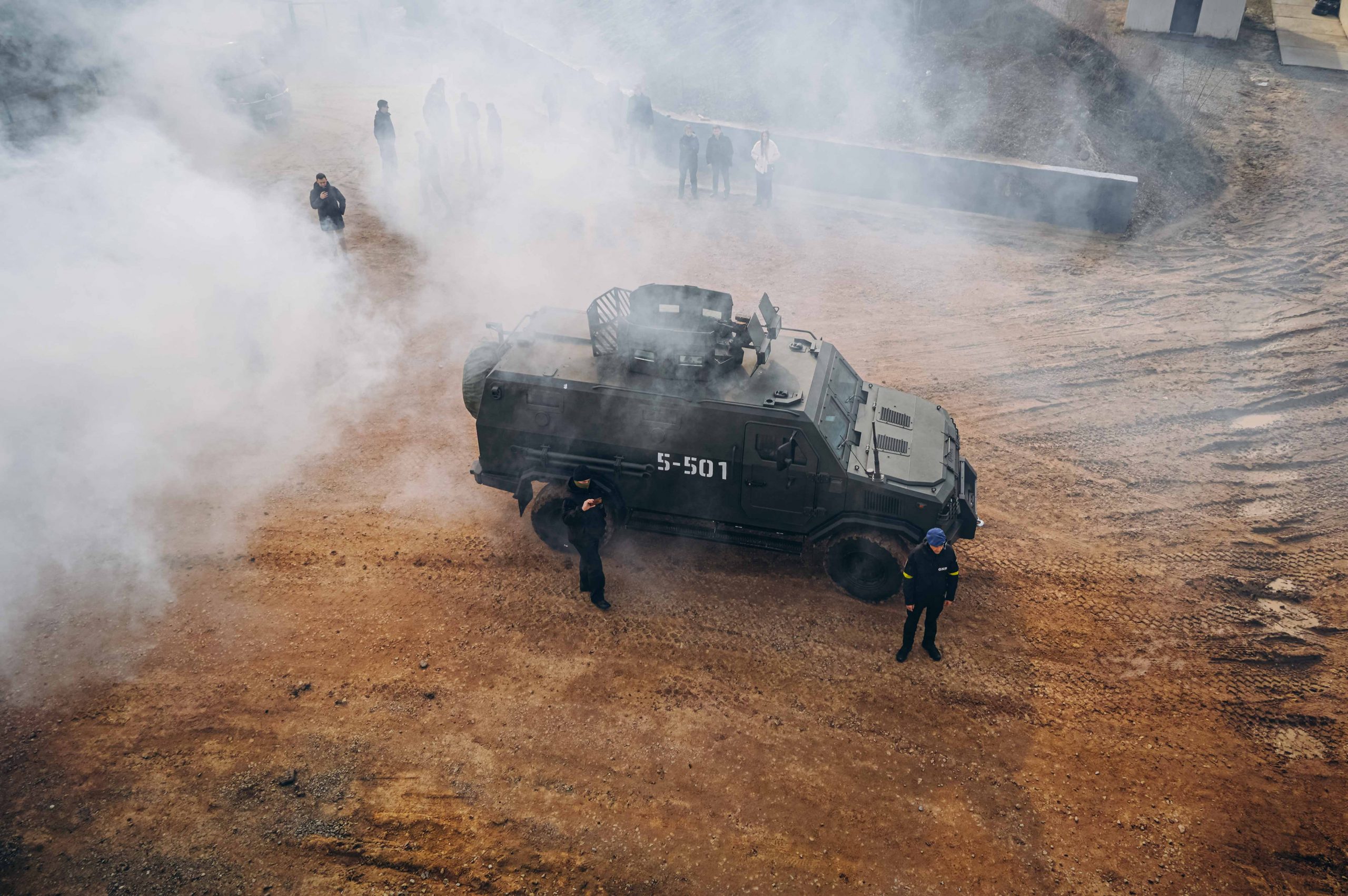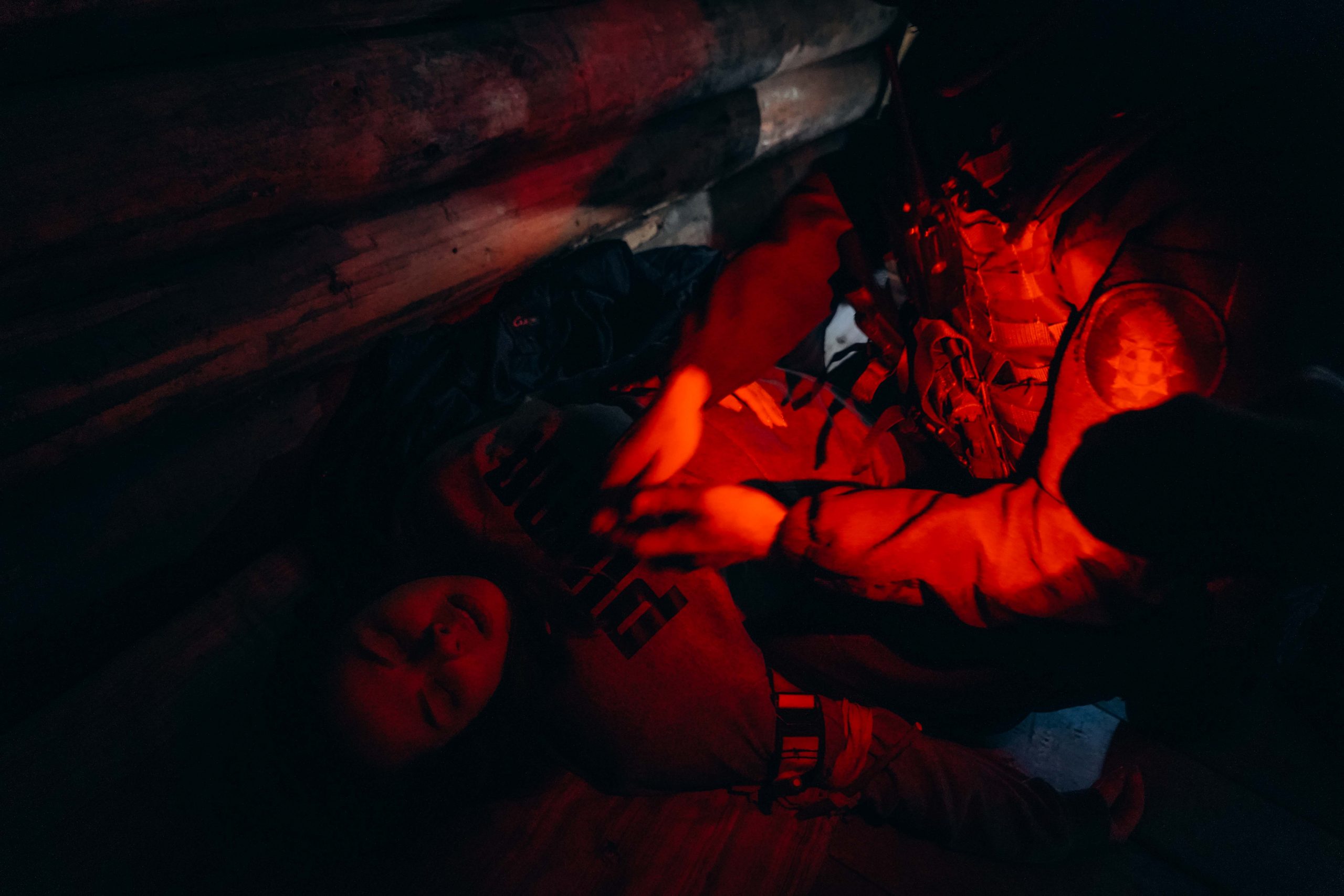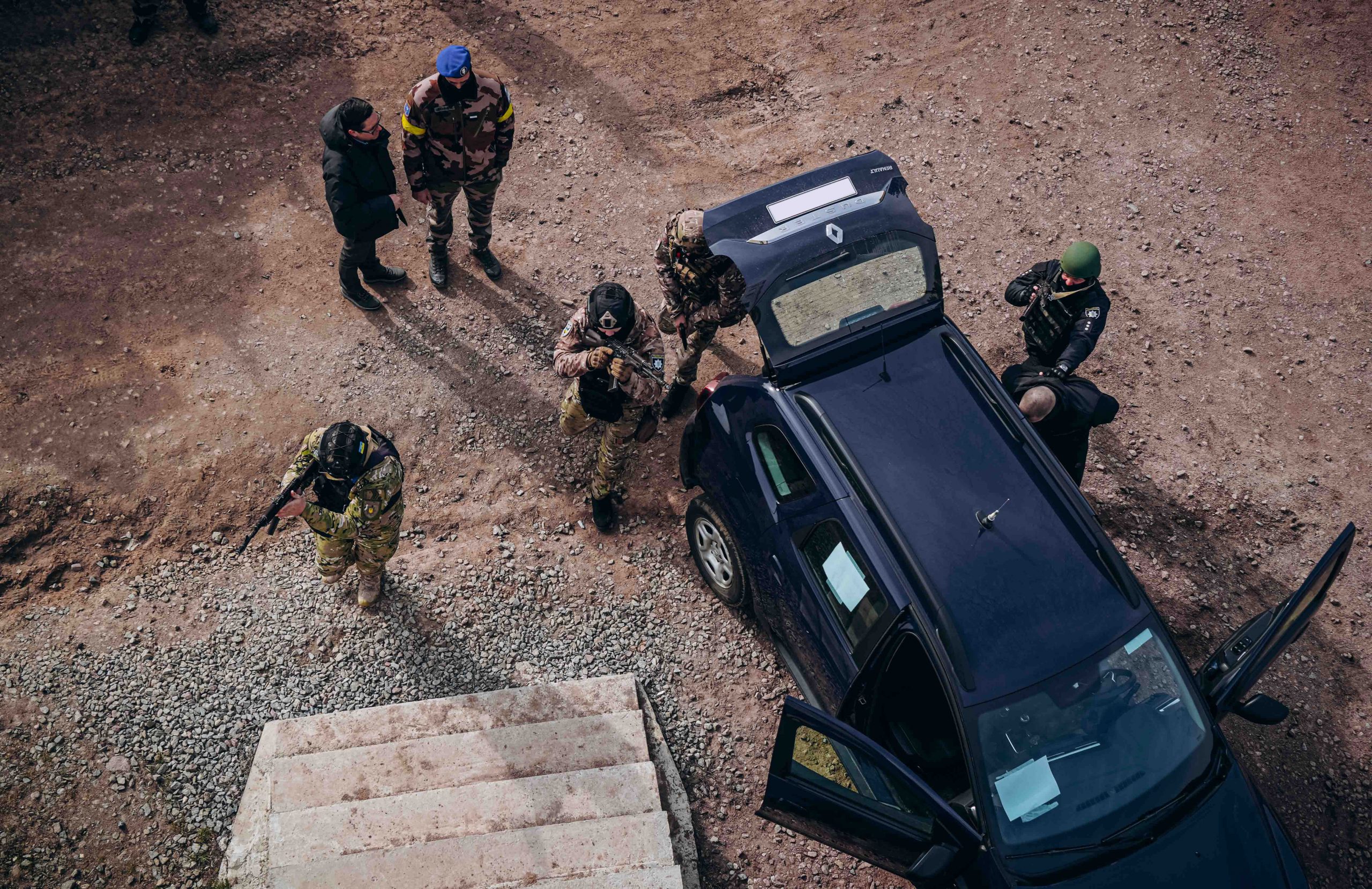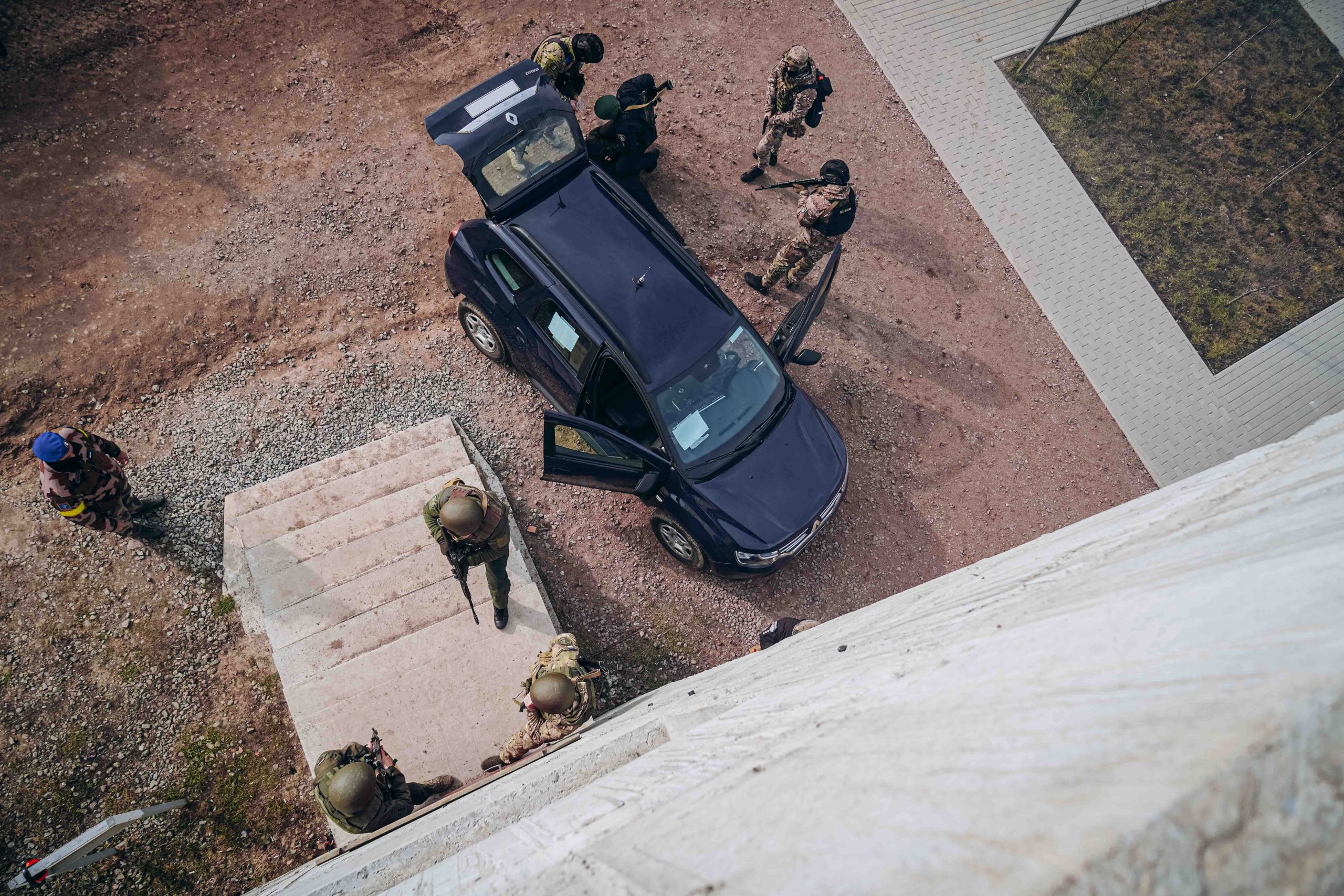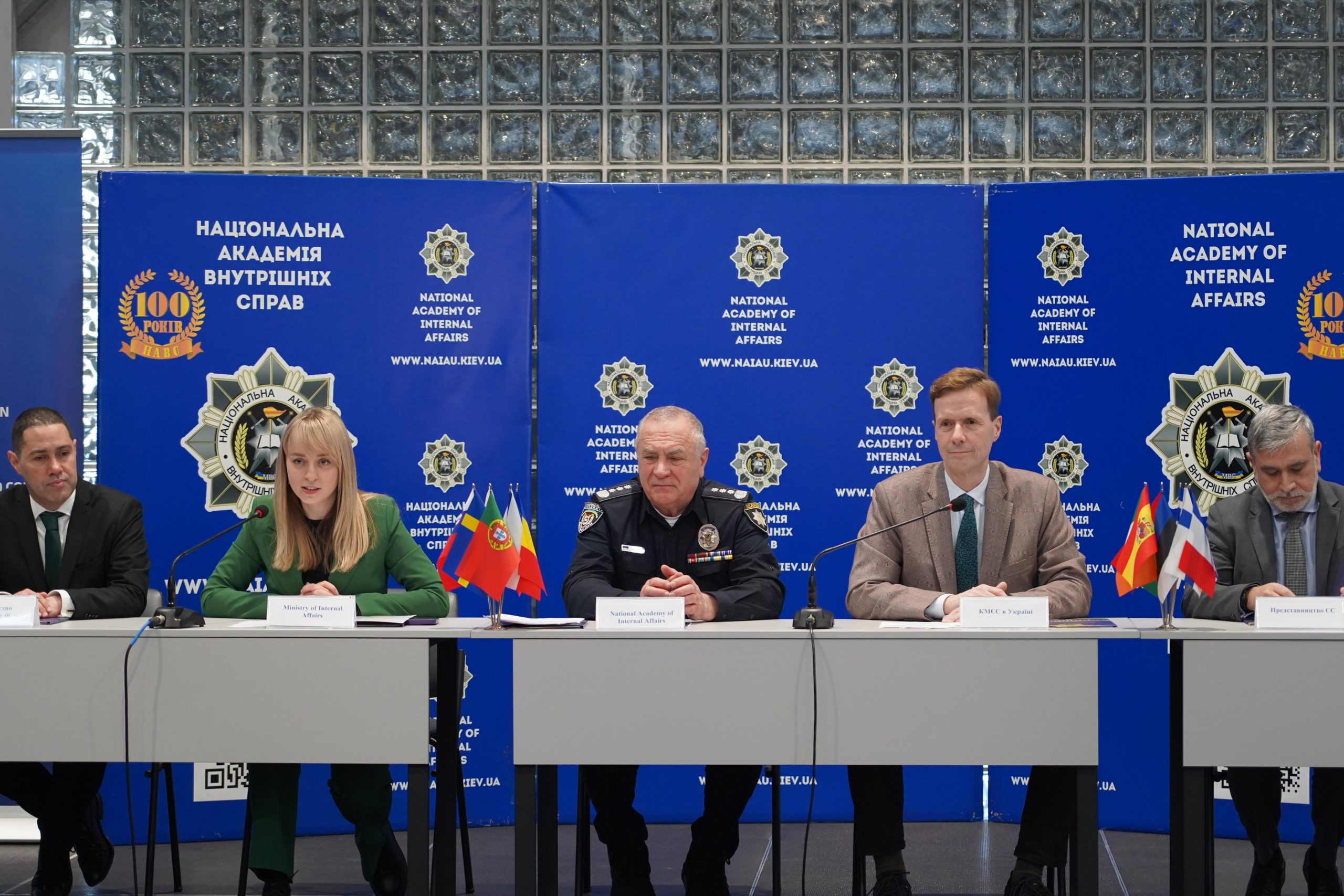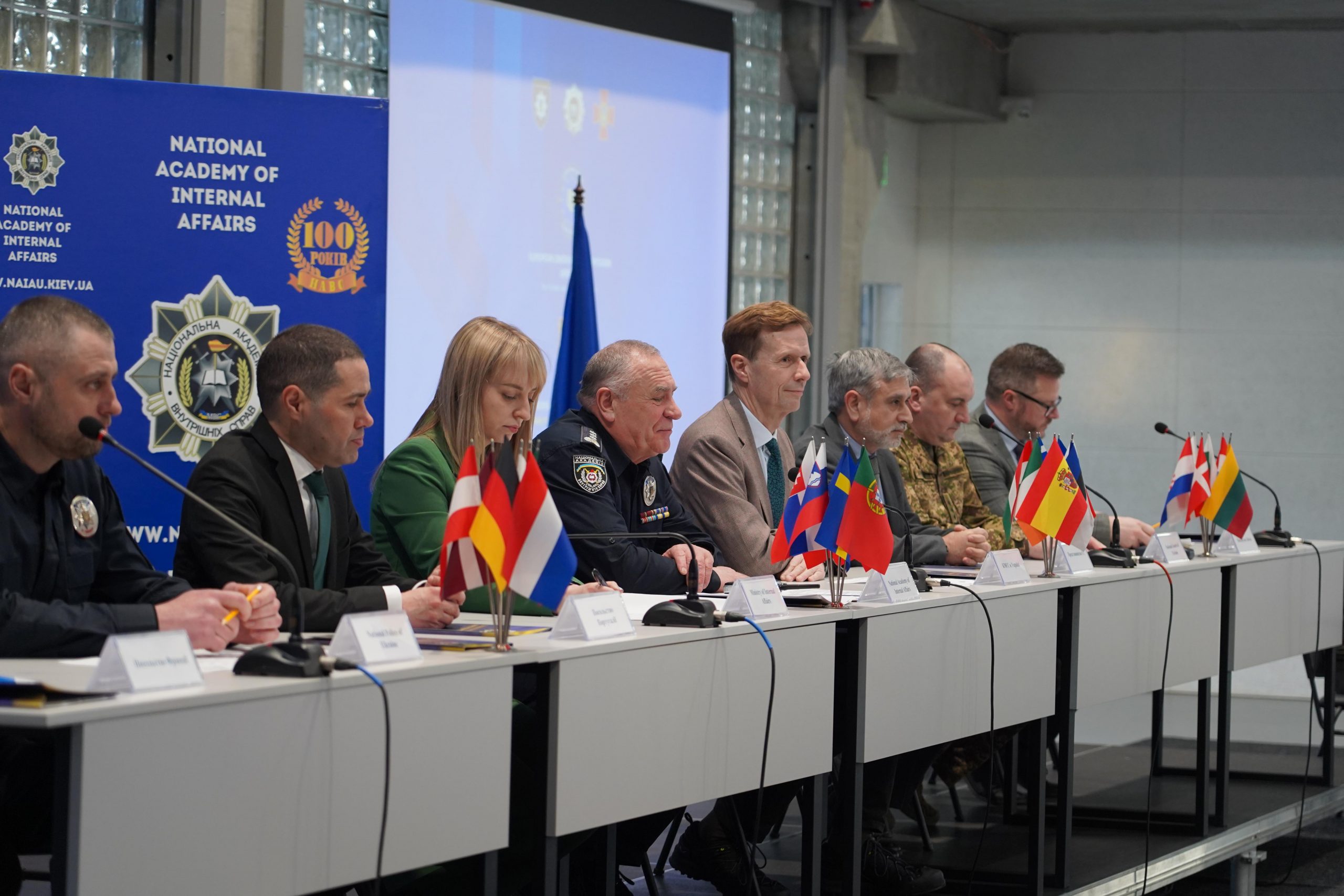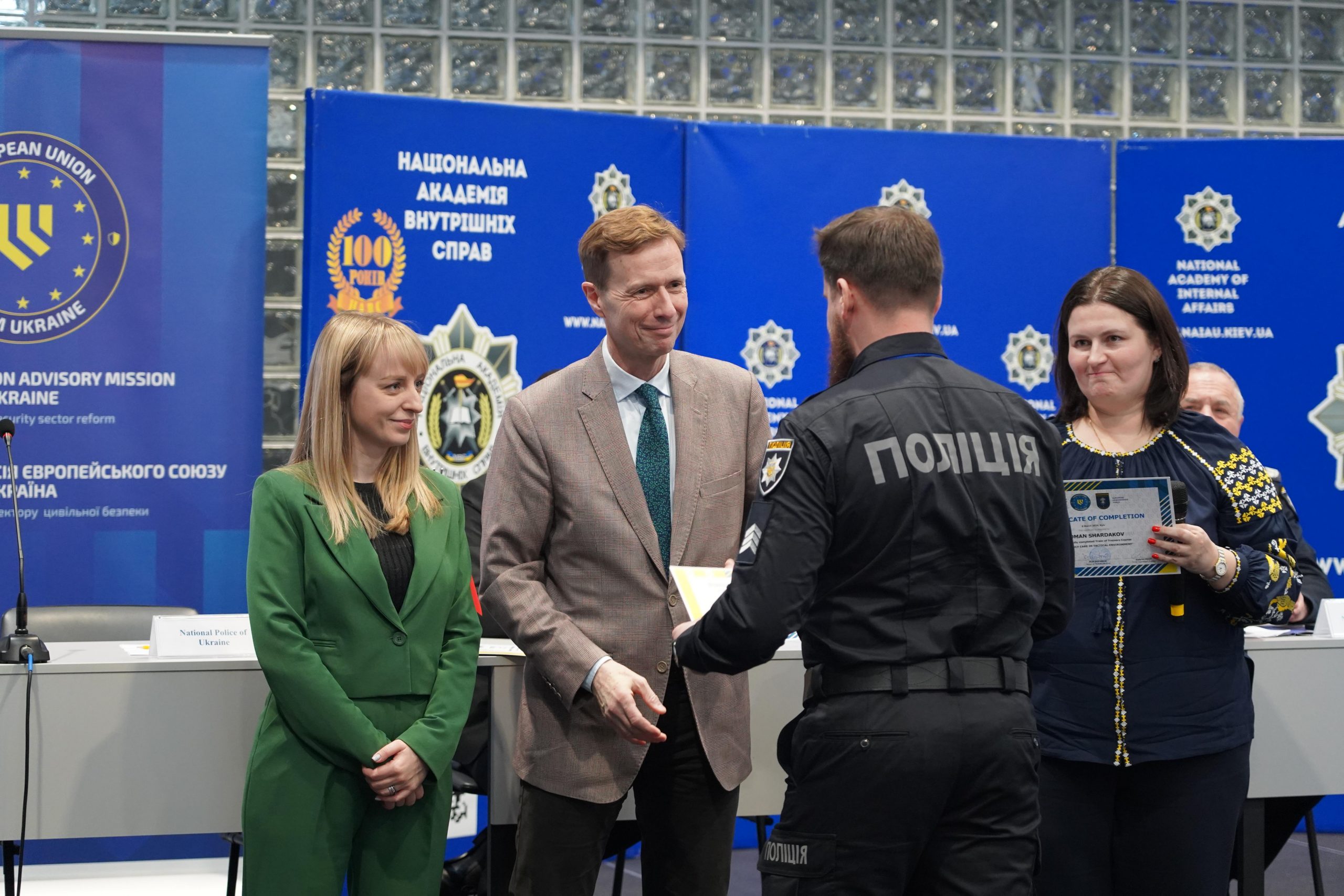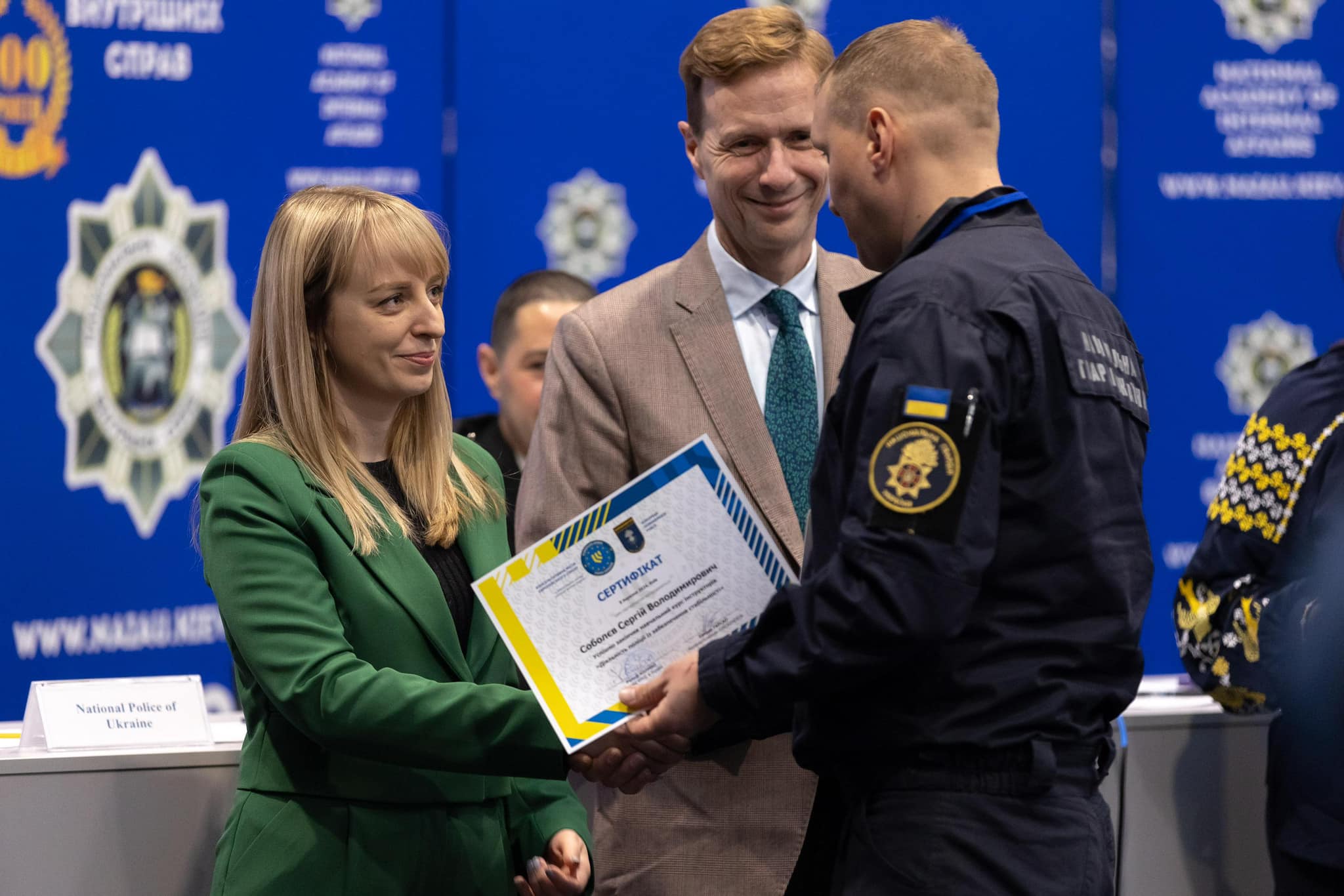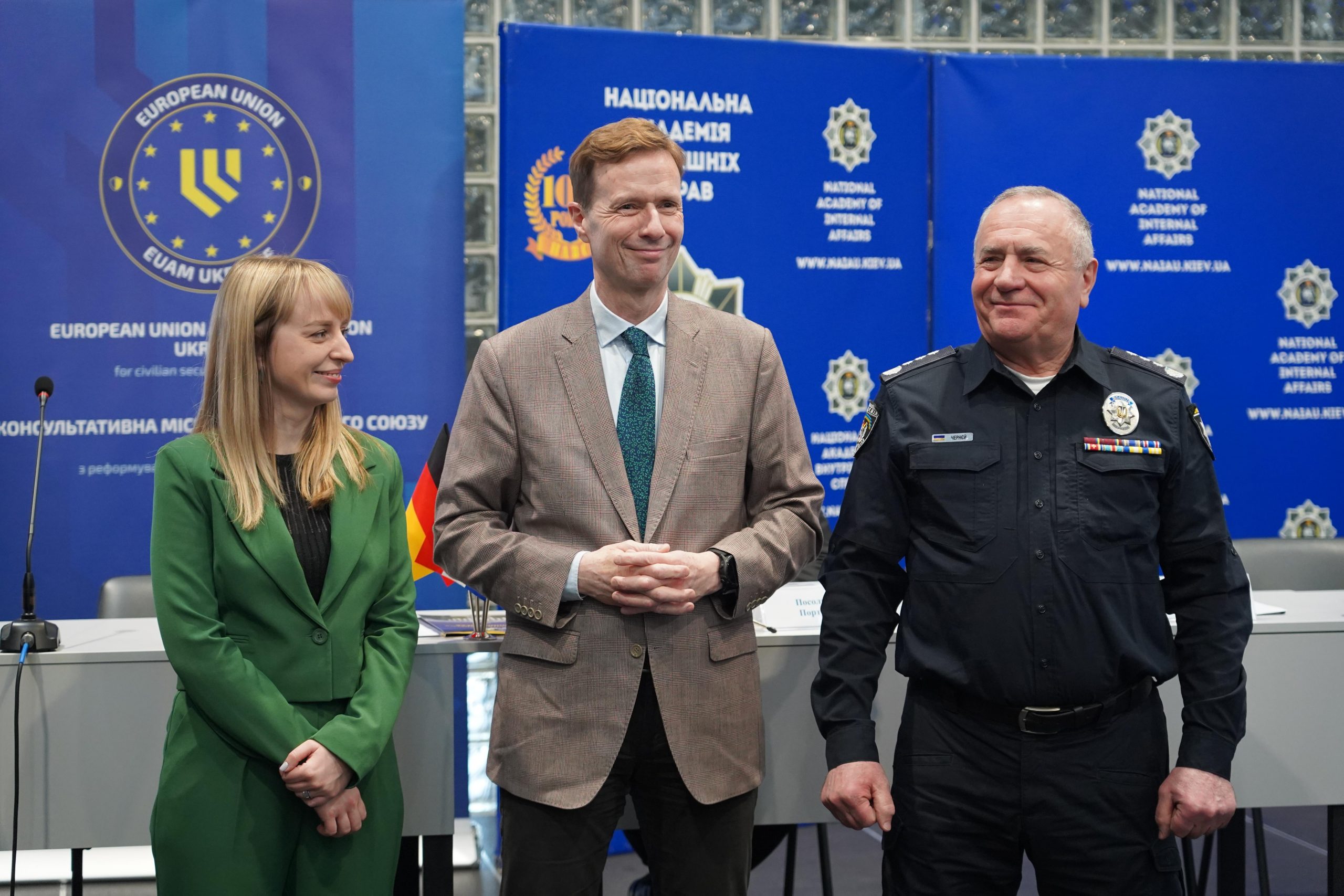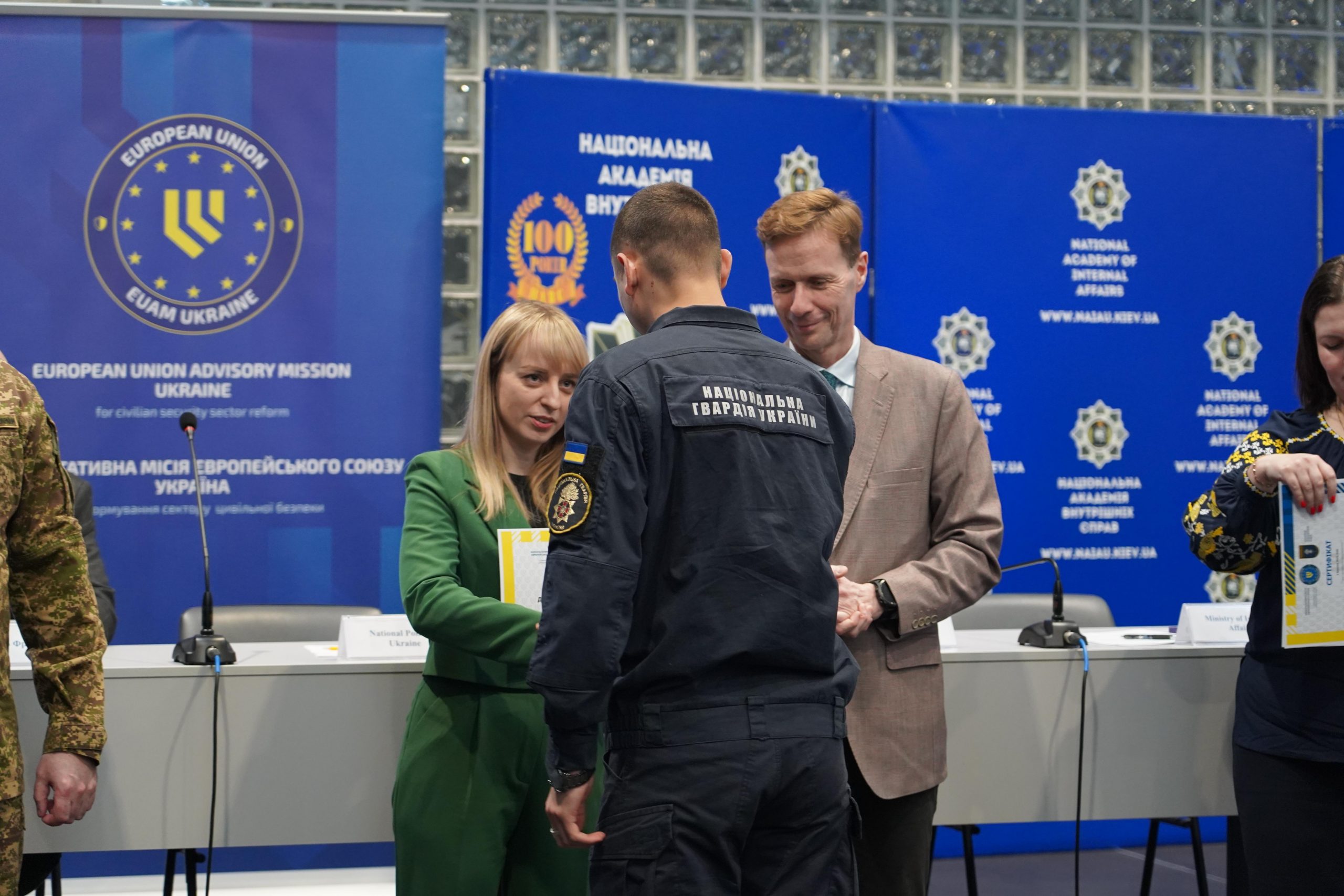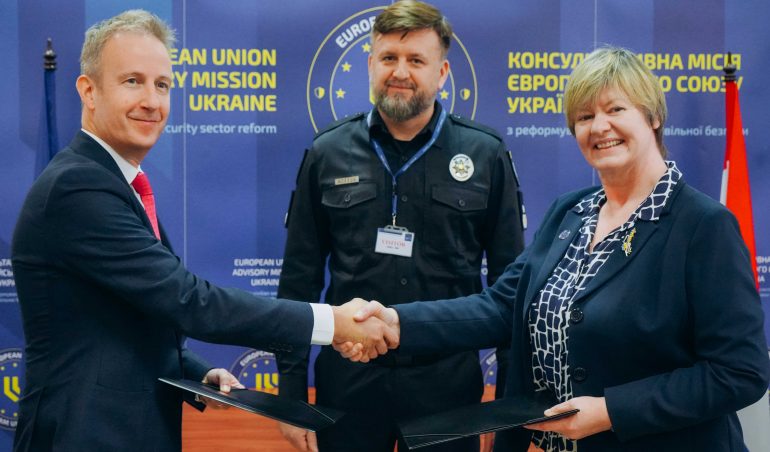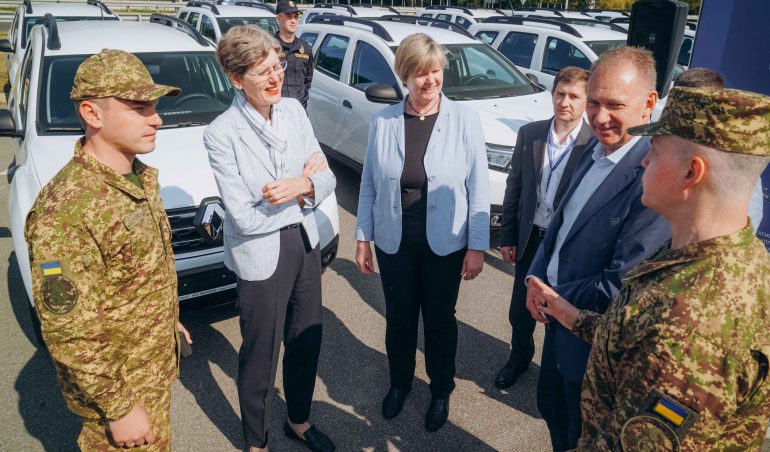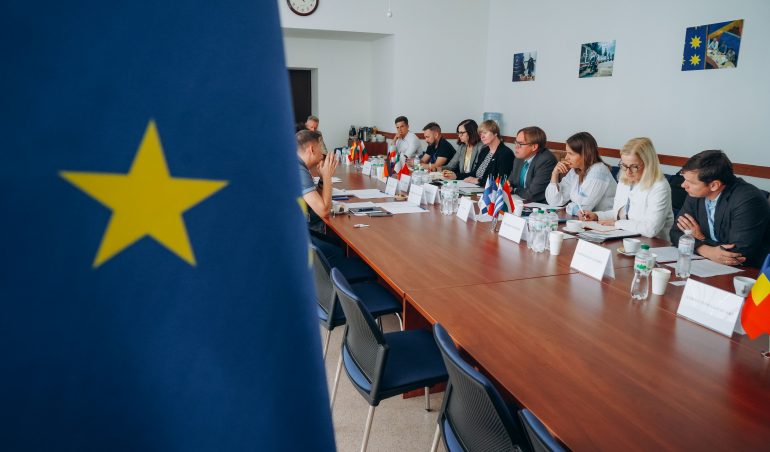Support In Action: Stability Policing Training for Ukrainian Law Enforcers
March 13, 2024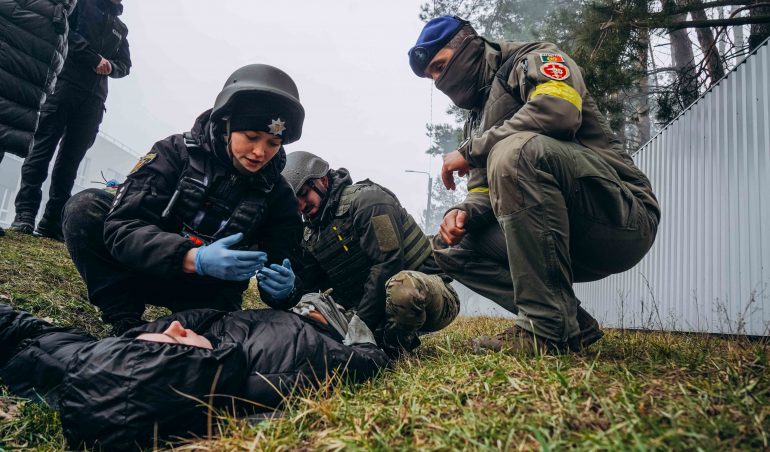
“I have witnessed a tremendous amount of human grief and many victims since the beginning of the full-scale invasion,” shares Daryna, a young police officer from Zaporizhzhia. Together with the paramedic team, she often arrives first at the scene of shelling in her hometown. “Initially, we had to learn how to manage these situations on the fly, as we had received no special training for working under such extreme conditions,” she adds.
Daryna was among 162 participants in the comprehensive Training of Trainers (ToT) on Stability Policing, organised by the EU Advisory Mission (EUAM) Ukraine and led by the Specialised Team of the European Gendarmerie Force (EUROGENDFOR). The final session in this training series, spanning six weeks, concluded last Friday. This initiative, targeting representatives from the National Police of Ukraine (NPU) and the National Guard of Ukraine (NGU), along with trainers from the National Academy of Internal Affairs (NAIA), responds to their urgent need for heightened preparedness and self-sufficiency amidst Russia’s unprovoked aggression. It aims to fortify stability policing capabilities within Ukraine and equip Ukrainian officers for deployment to the de-occupied and adjacent territories (DOAT).
Stability Policing Course for Trainers
The war has dramatically expanded the responsibilities of Ukrainian law enforcement agencies (LEAs), which, following territorial liberations by the Ukrainian Armed Forces, are tasked with a wide array of critical functions. These range from coordinating with civilian and military entities to protecting human rights, investigating war crimes, and ensuring public safety. The concept of Stability Policing underpins these efforts, aimed at restoring order and enforcing the rule of law in de-occupied regions.
“These trainings aim to strengthen LEAs’ capabilities to tackle these challenges. The Ukrainian trainers will now cascade the training to law enforcement officers who are selected to deploy to de-occupied territories,” says Rolf Holmboe, the head of EUAM. “By training LEAs together, we also hope to strengthen interagency cooperation and support future interoperability,” Holmboe adds.
The assembly of experts from various EU countries, from Portugal to Lithuania, has a very important symbolic value for the Ukrainian counterparts. It illustrates European cohesion in supporting Ukraine’s resilience and sovereignty.
“It was the first deployment of uniformed personnel in Ukraine since Russia’s full-scale invasion, which displays a new level of determination in the EU’s joint support for Ukraine,” says the Specialised Team’s leader Helder Garcao.
The EUROGENDFOR’s Specialised Team, led by the Portuguese Gendarmerie (Guarda Nacional Republicana) and including selected experts from the Spanish Guardia Civil, the French Gendarmerie Nationale, and the Lithuanian Public Security Service, fostered a dynamic and interactive training environment. This approach promoted a productive exchange of knowledge and experiences, creating synergies among all participants.
The training curriculum was diverse, covering aspects from stability policing in conflict zones to tactical combat casualty care (TCCC) and war crimes investigation. A key feature was the integrated exercise concluding the course, testing the participants’ ability to apply their newfound knowledge in realistic scenarios, thus demonstrating the training’s practical relevance.
“I am immensely grateful for the training, especially for learning how to communicate with victims. It’s incredibly challenging not to be overwhelmed by all the pain. Preserving our own emotional resources is crucial to effectively assisting those who have lost their loved ones,” says Daryna upon completing the course. Her colleague from the National Guard, Serhii, echoed her gratitude, emphasising that the knowledge he gained will be implemented in the training programs for NGU’s personnel.
Kateryna Pavlichenko, Deputy Minister of Internal Affairs (MoIA), highlighted the importance of such training because it builds the human resource capacity of MoIA’s units operating in the frontline and de-occupied territories. “I am grateful to our partners from the EU Advisory Mission who helped us organise such exercises,” she stressed.
Looking Ahead
The ToT course is just the beginning of a continuous support process. EUAM, together with EUROGENDFOR experts, will maintain its engagement through monitoring and mentorship to develop a sustainable capacity-building framework. The next steps include leveraging the knowledge acquired to enhance the capabilities of officers slated for DOAT deployment, with an emphasis on forming Stability Policing Units to address security voids and reinstate the rule of law.
This subsequent phase is crucial, with Ukrainian trainers disseminating their newfound expertise. A strategic component involves crafting a custom curriculum for pre-deployment trainings, leveraging insights and resources from the ToT course, enriched by the trainers’ experiences and the specific requirements identified within DOAT.
Plans are also in motion for a pilot course that unites forces from the NGU, NPU, and EUAM together with the Specialised Team. This collaborative effort aims to share best practices, foster mutual understanding, and enhance interoperability among stakeholders, thereby elevating the efficiency and coordination of stability policing efforts.
Overall, this initiative represents a critical effort by EUAM Ukraine to enhance the operational capabilities of Ukrainian LEAs, ensuring security and stability in the DOATs. It’s a testament to the EU’s unwavering support for Ukraine, aiming to improve Stability Policing techniques, tactics, and procedures among Ukrainian law enforcers amidst challenging times.


